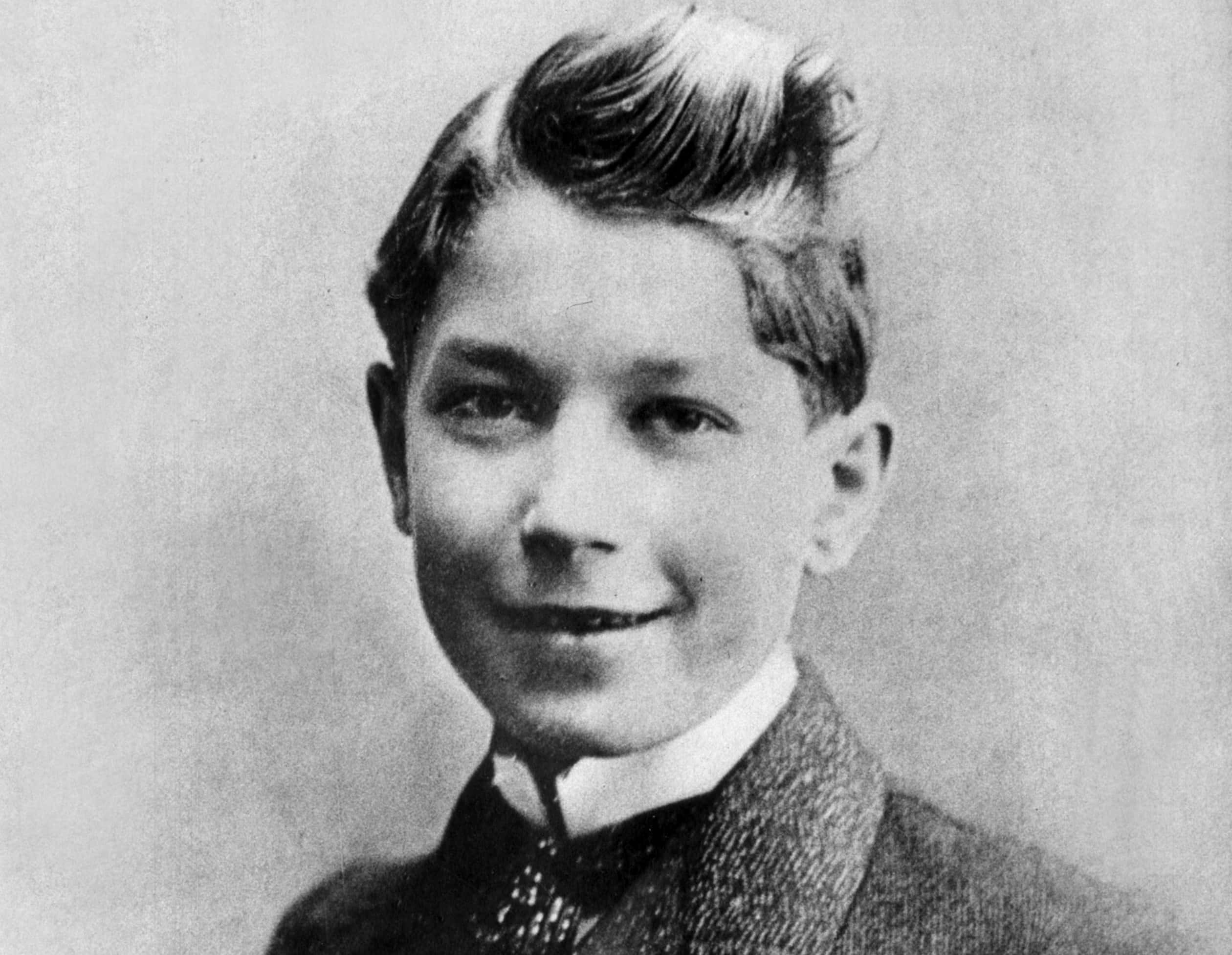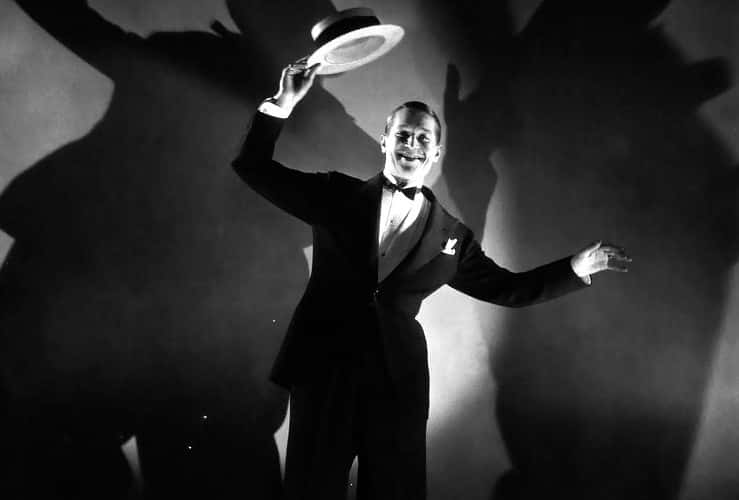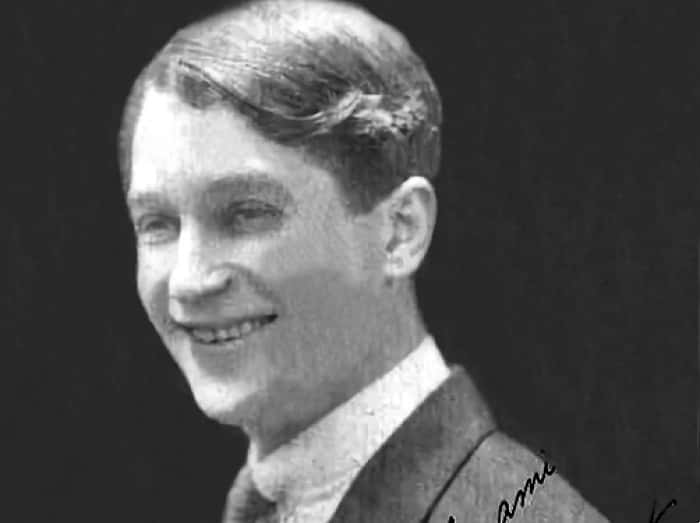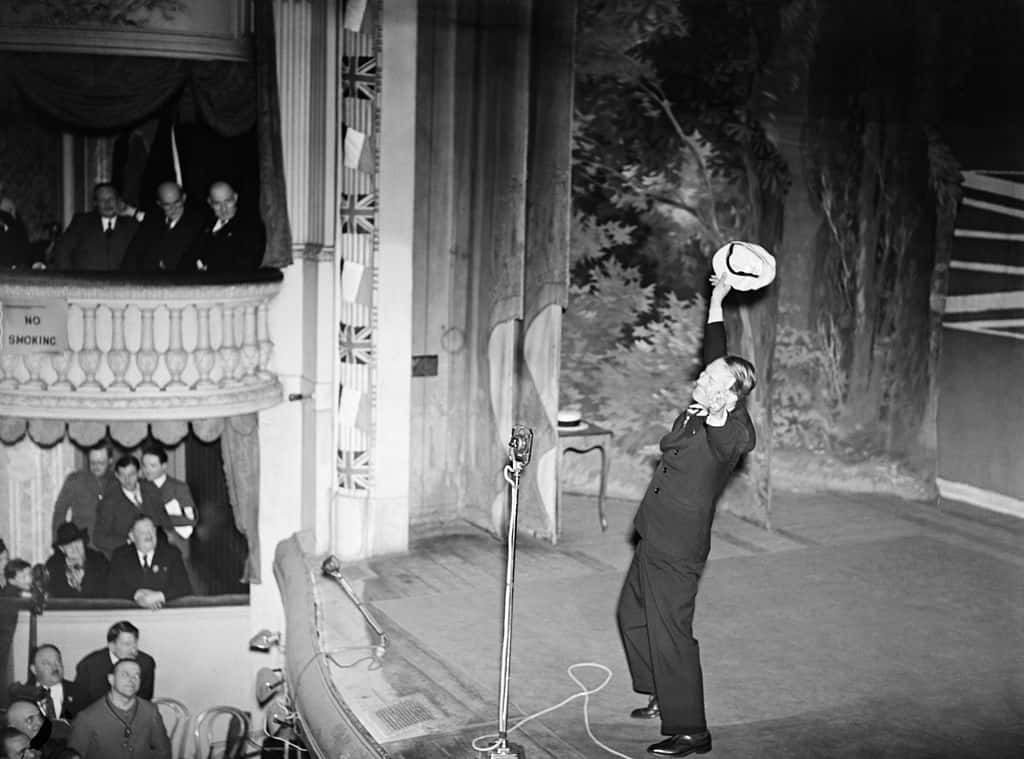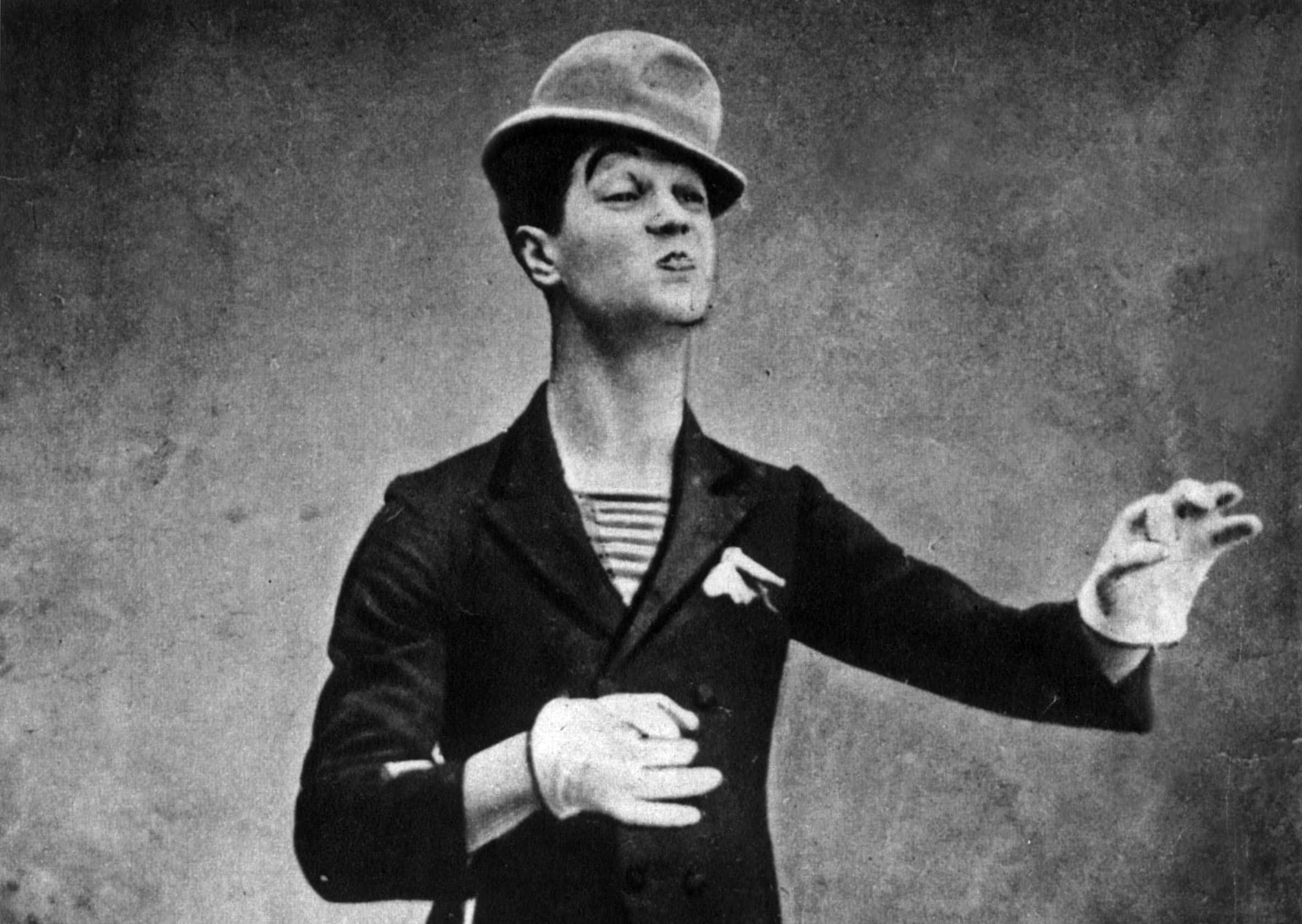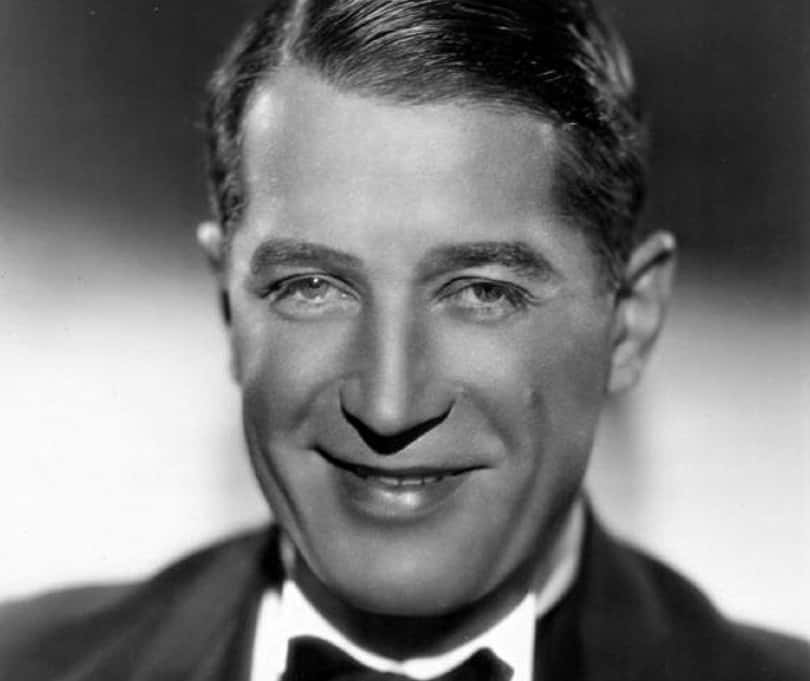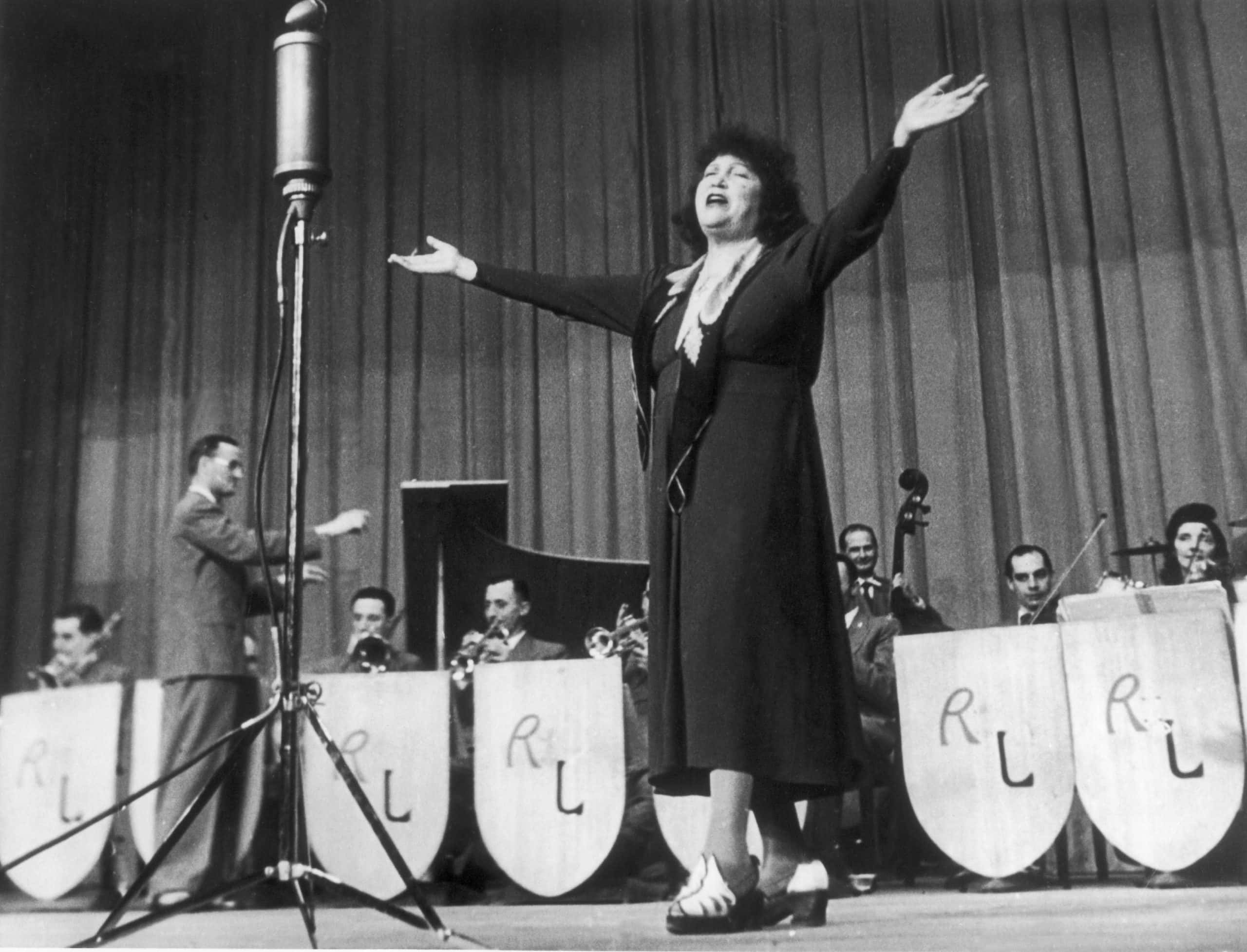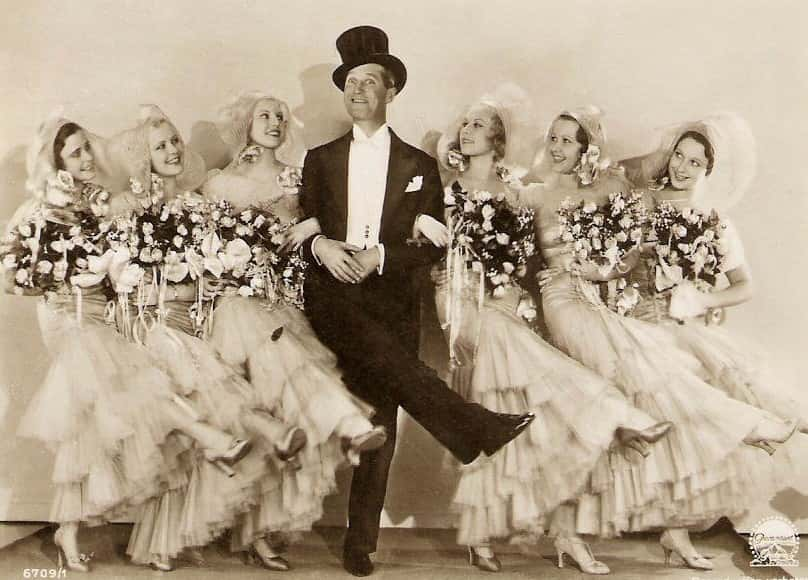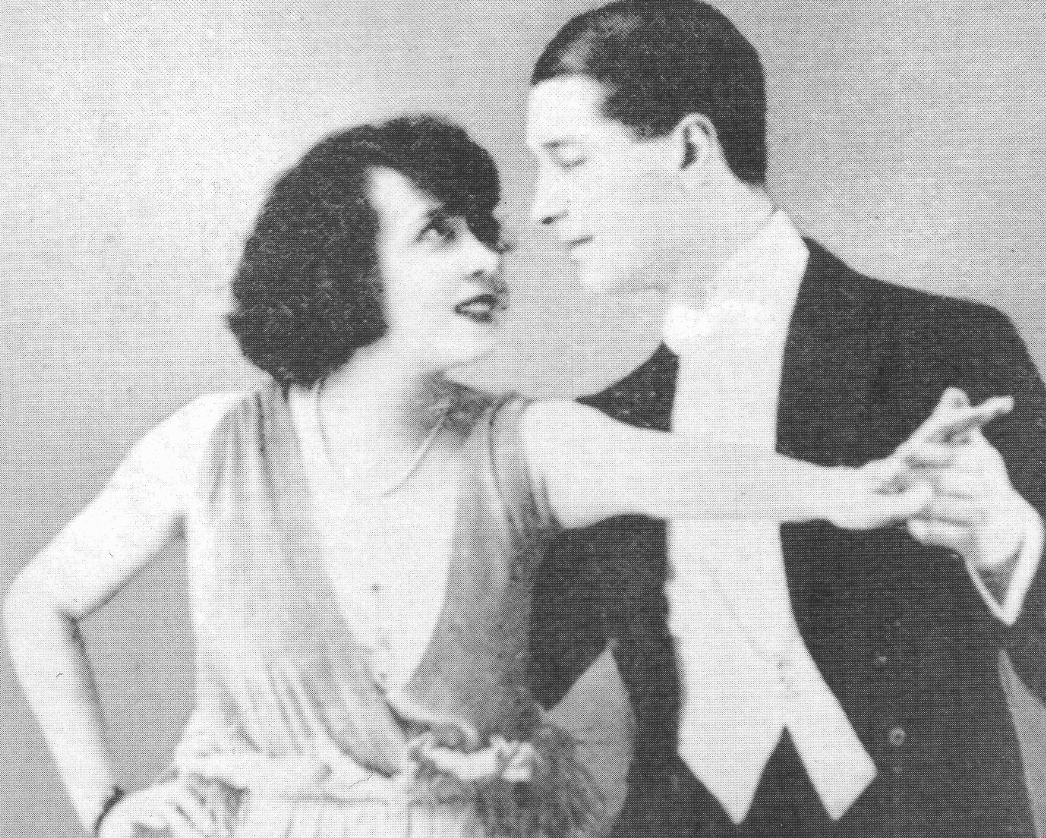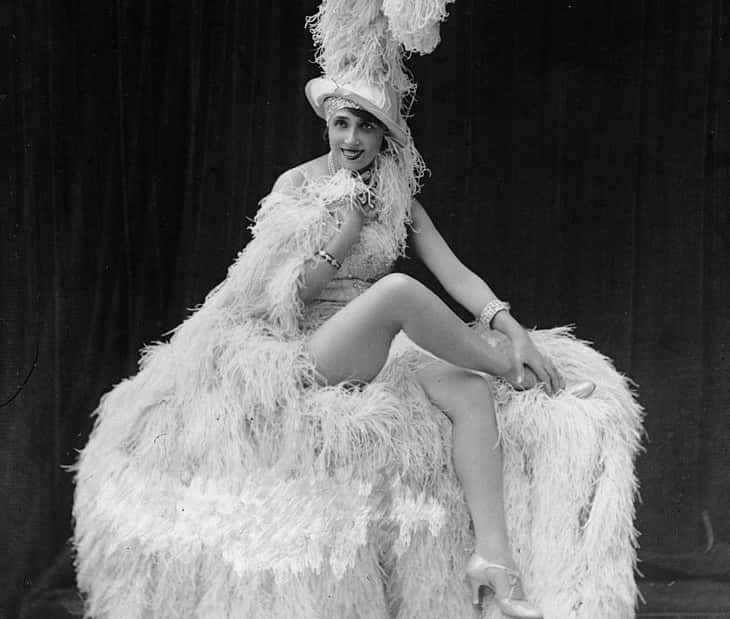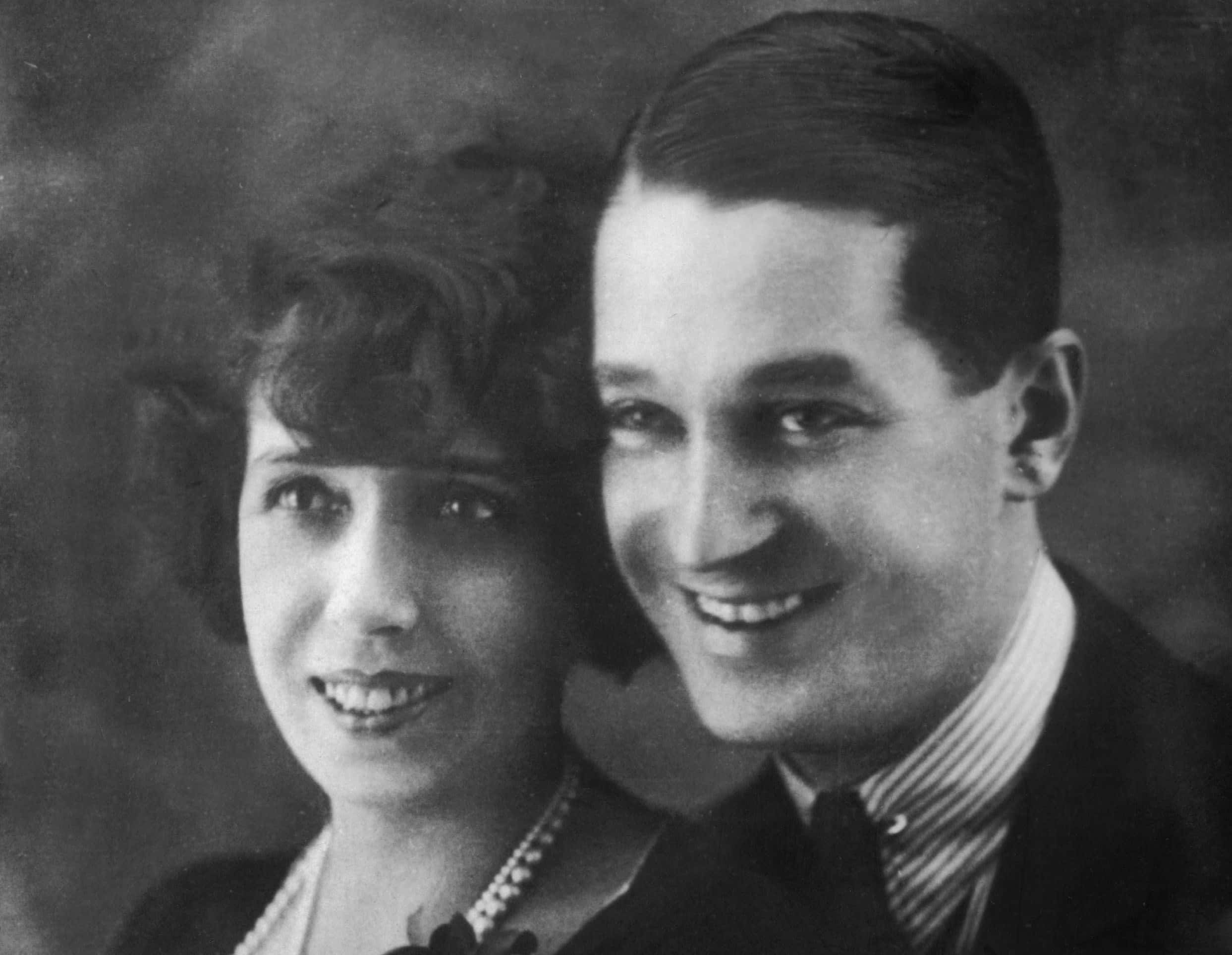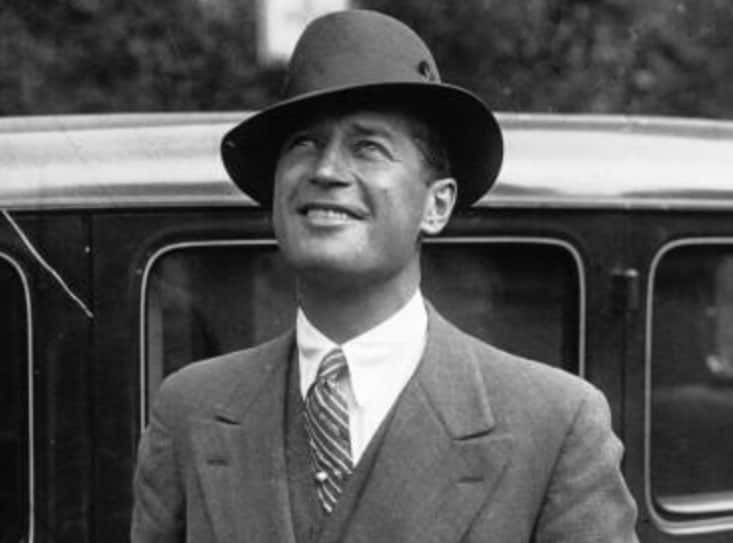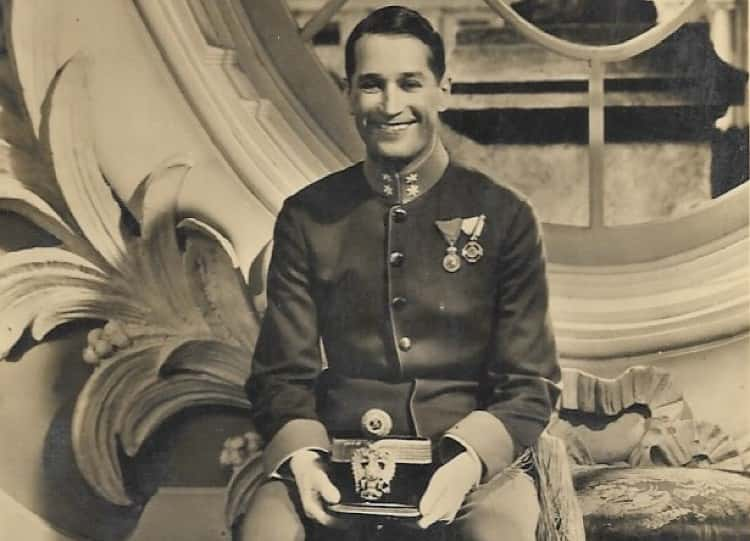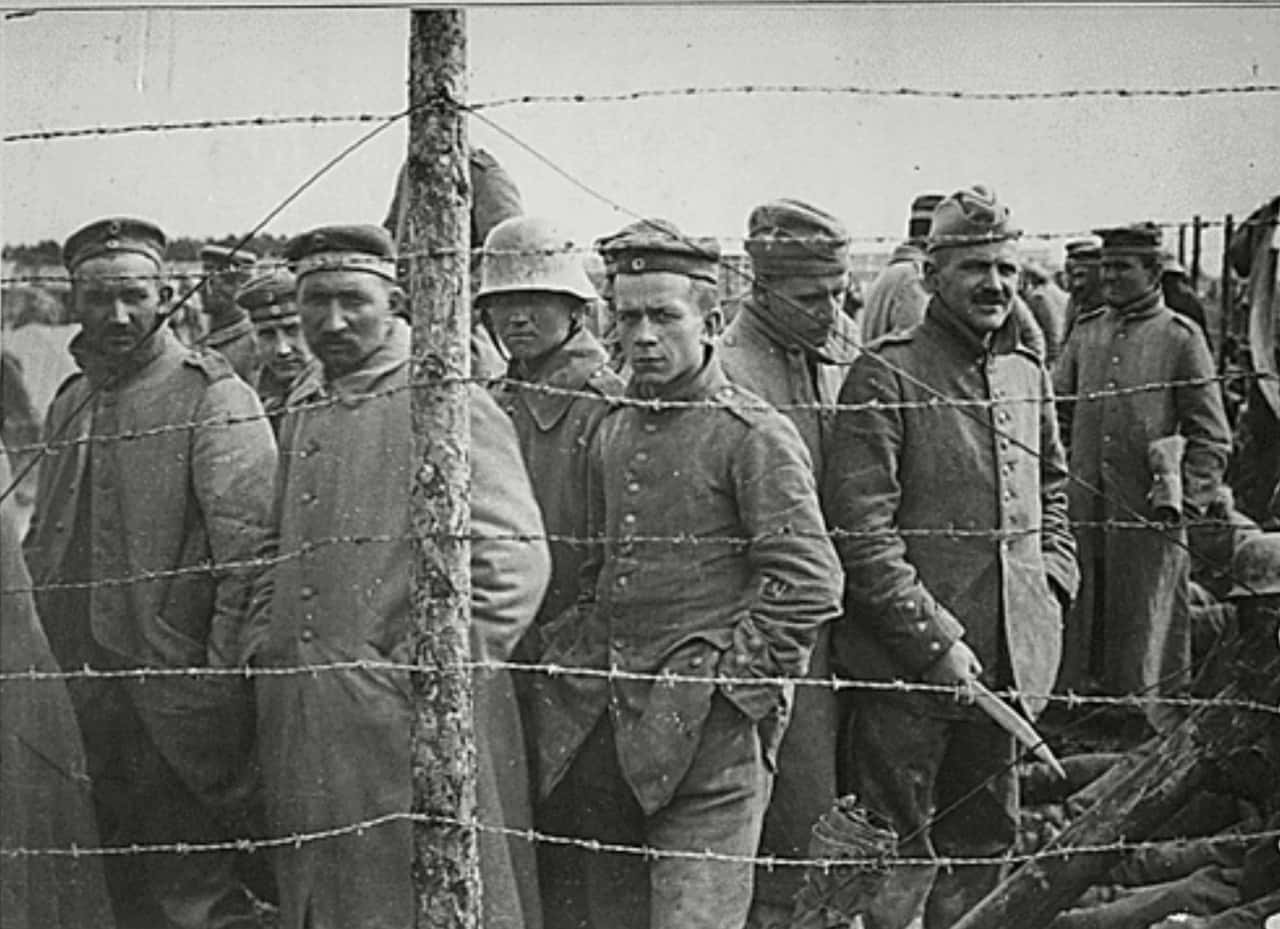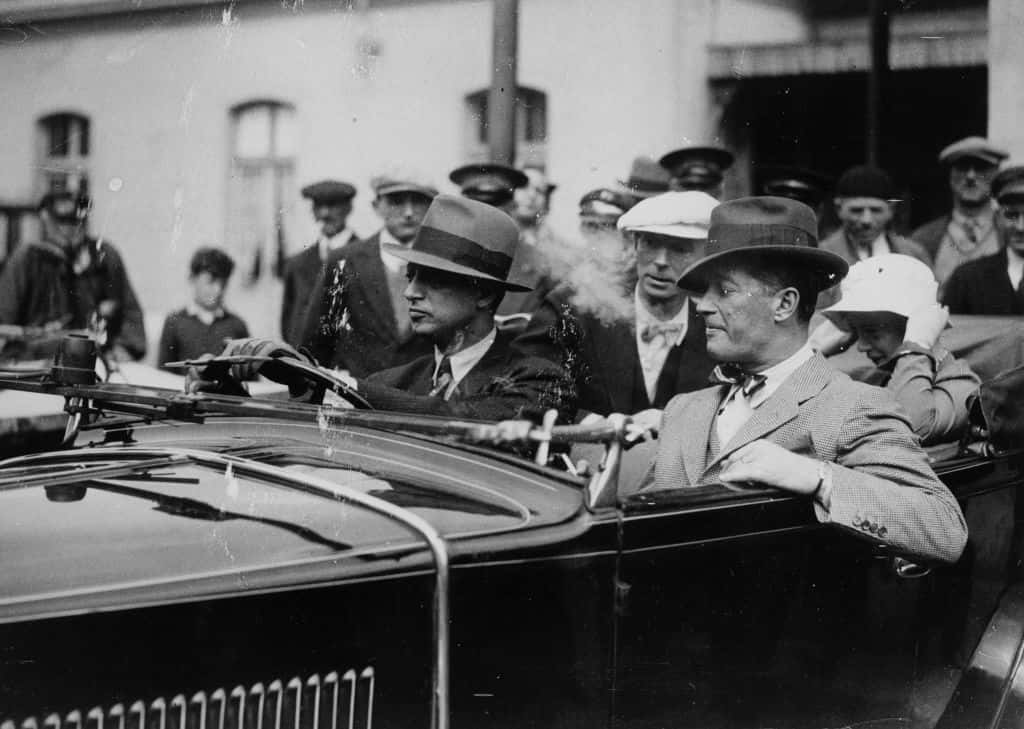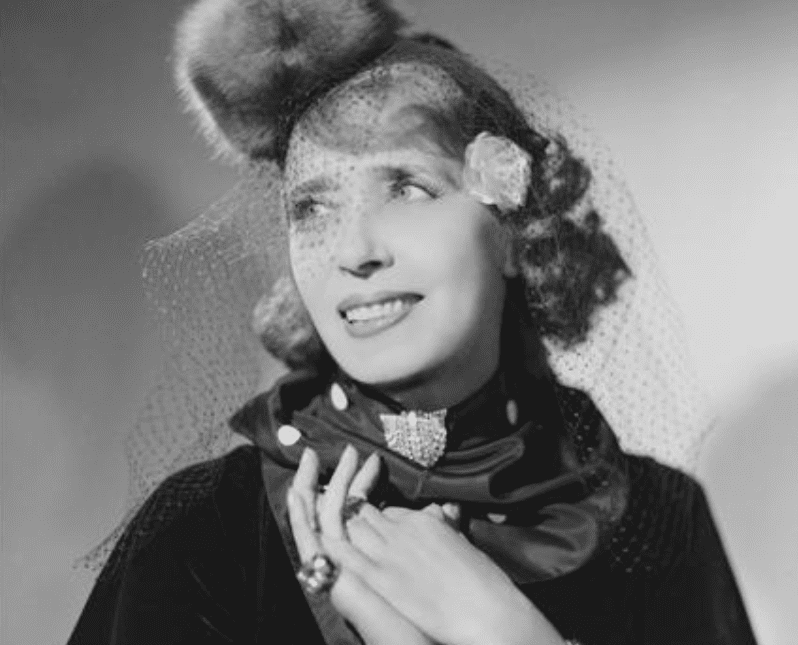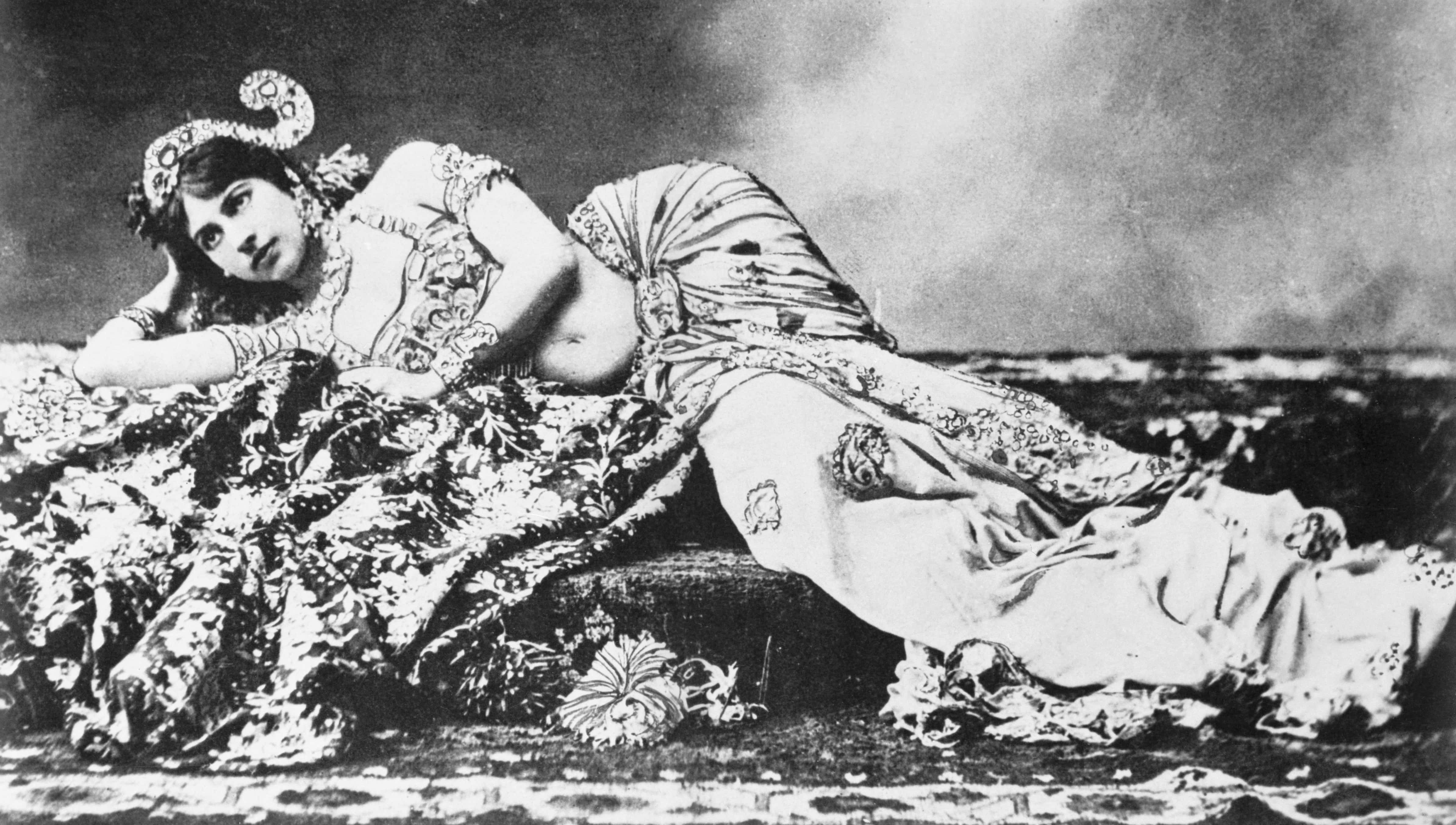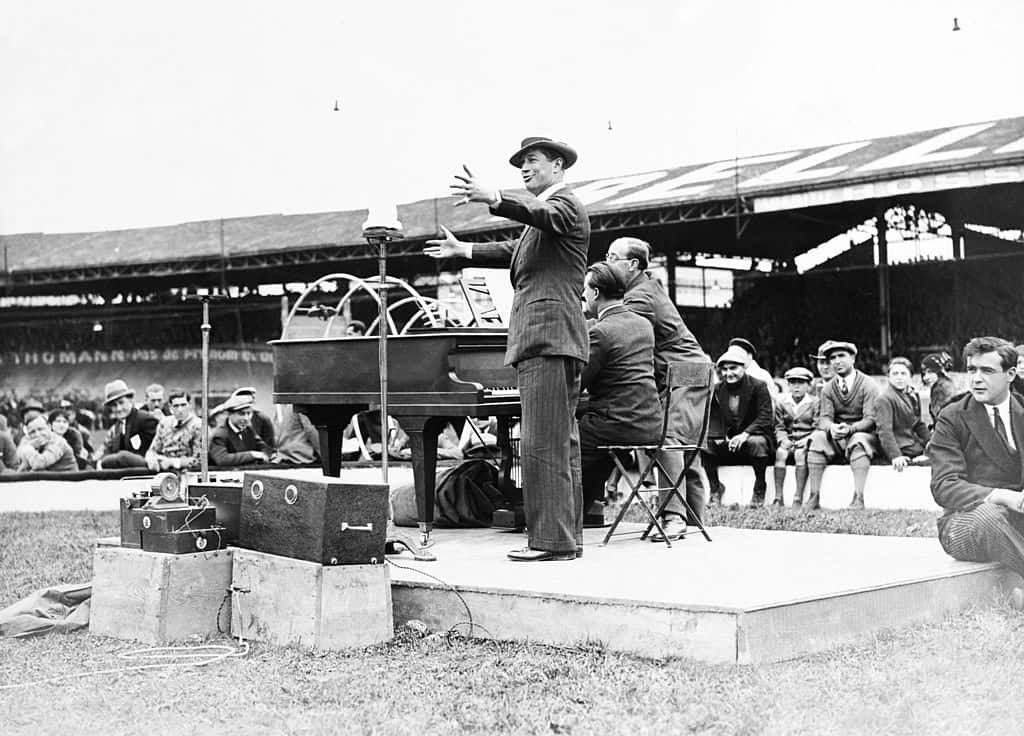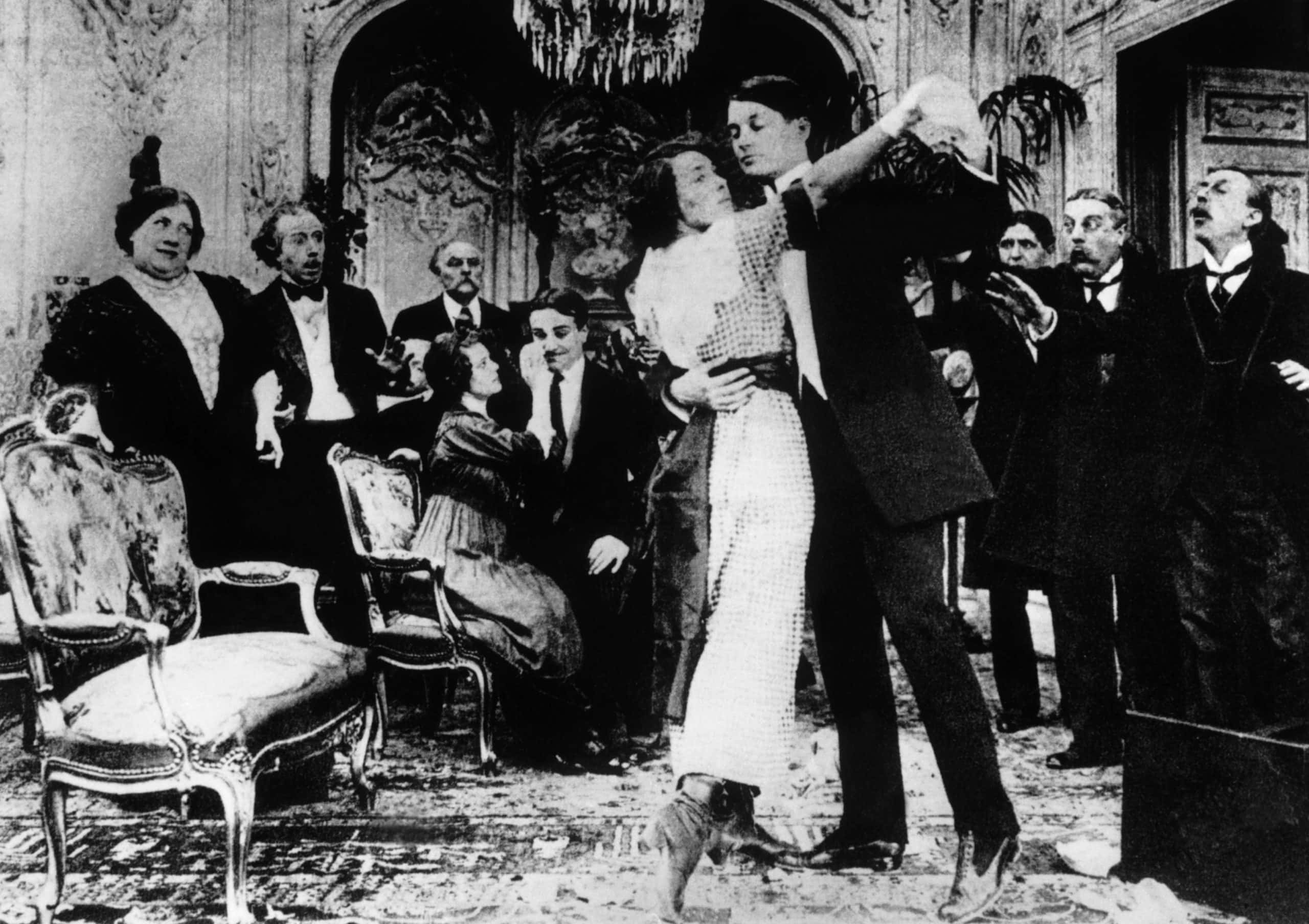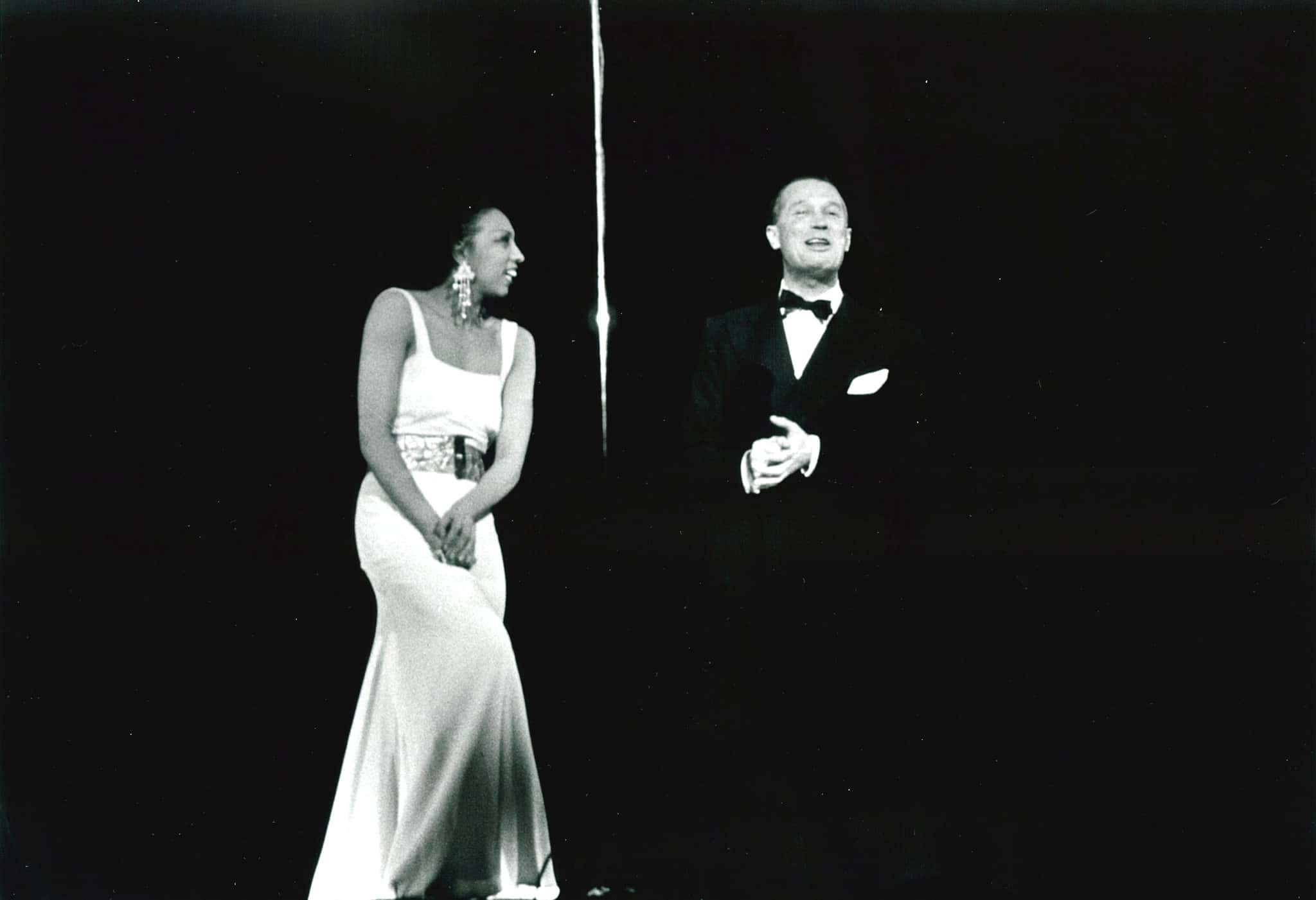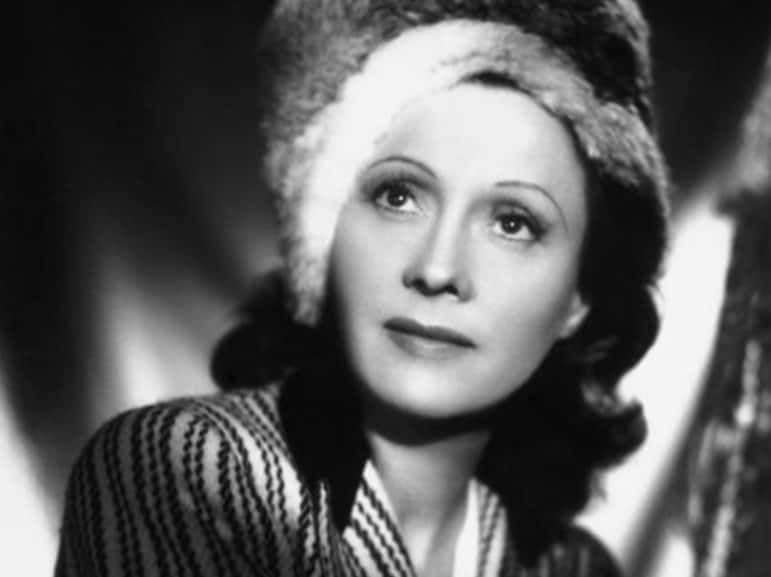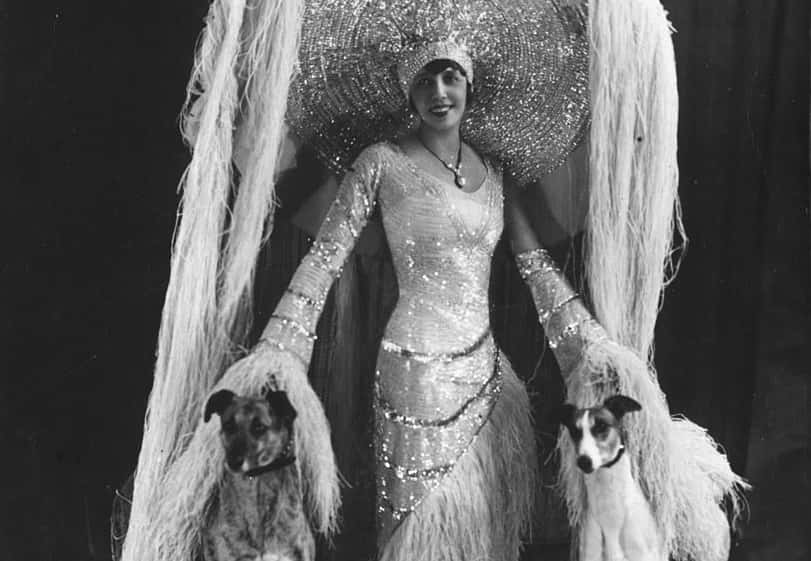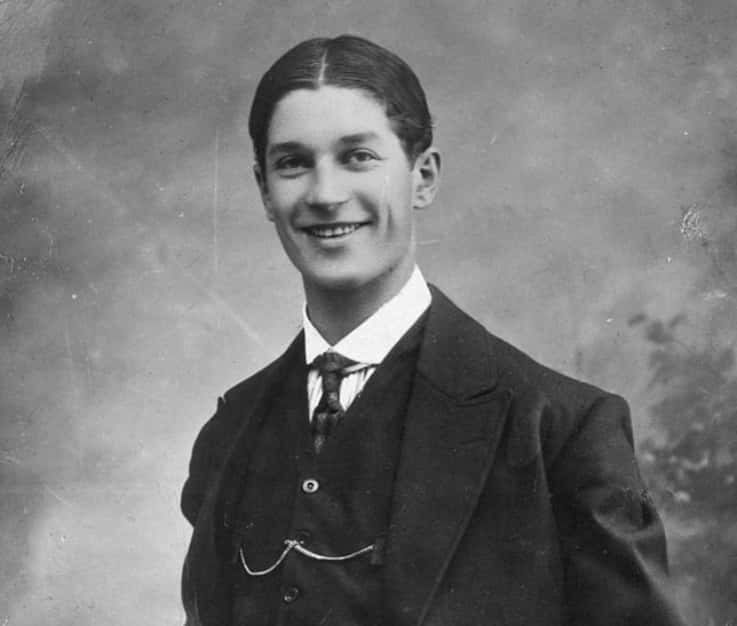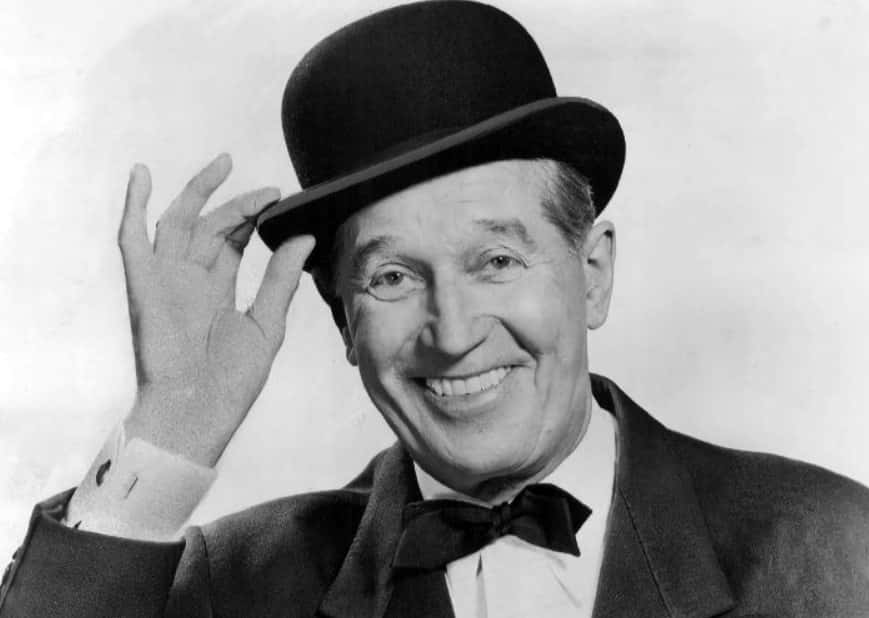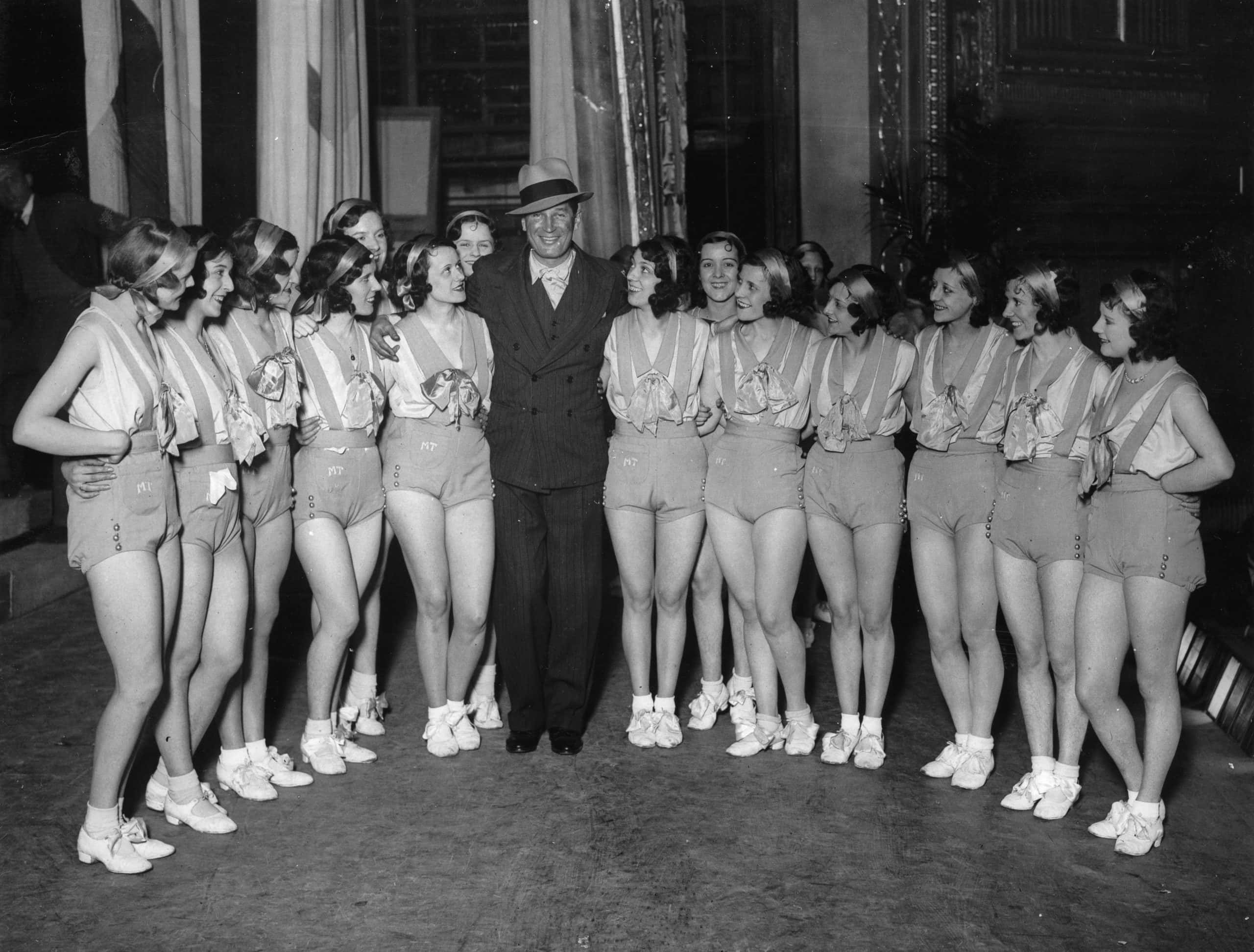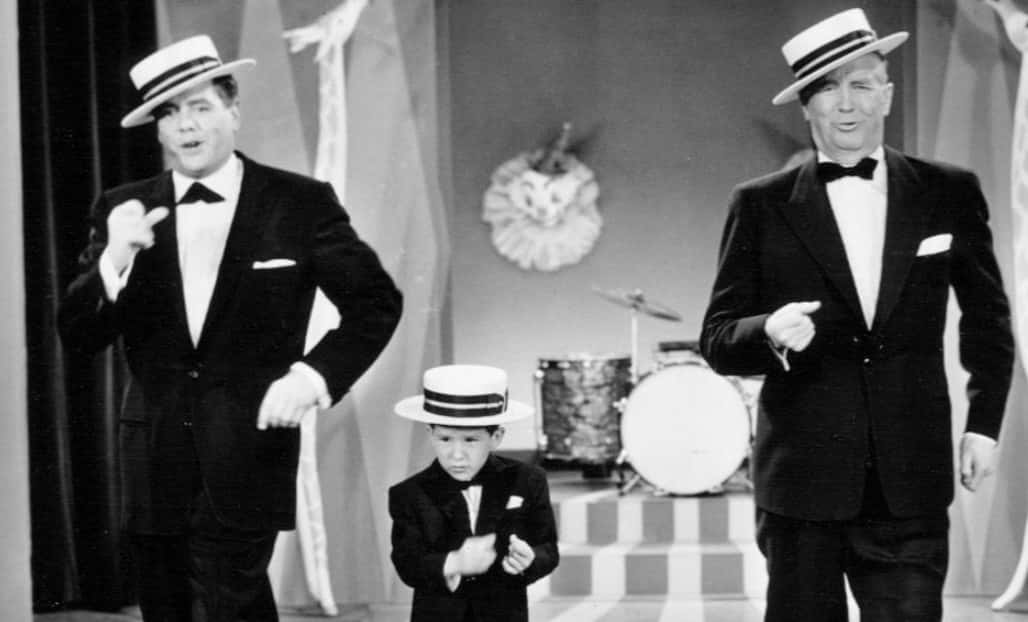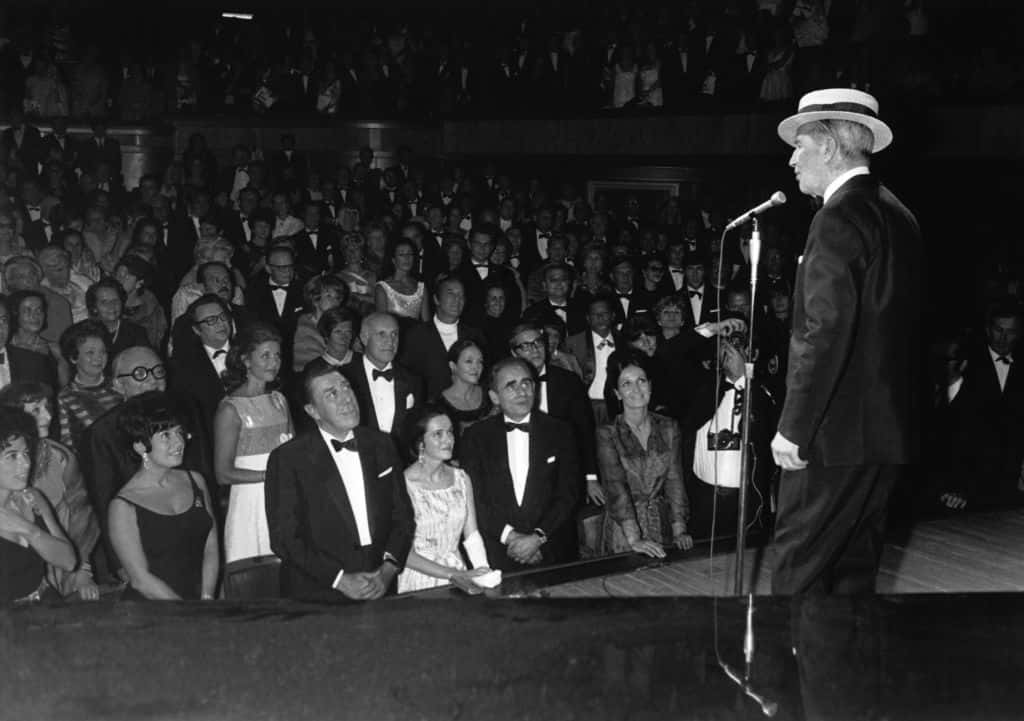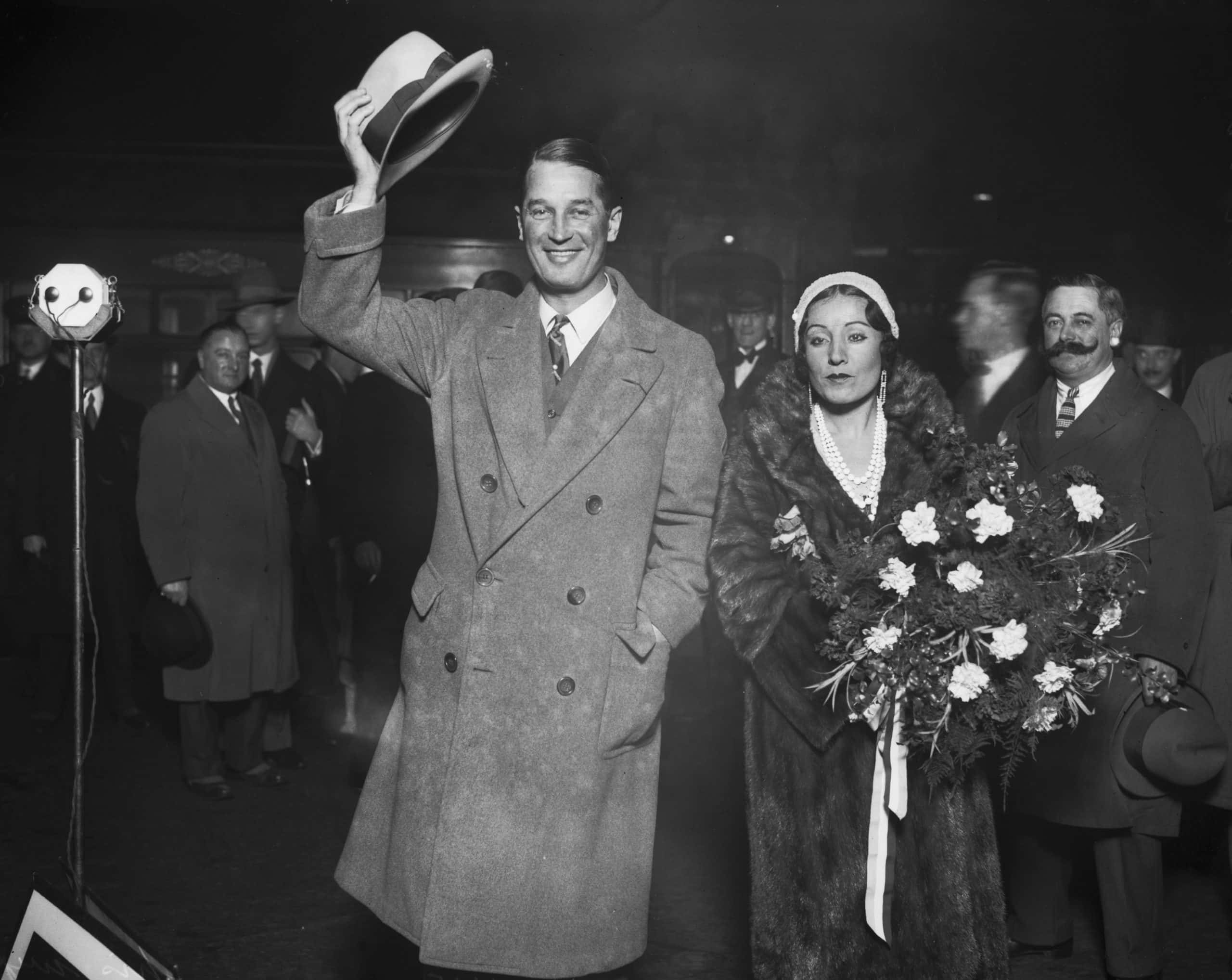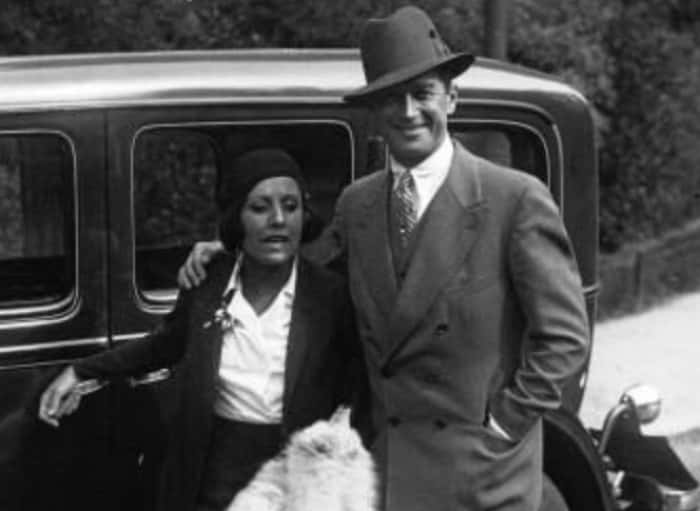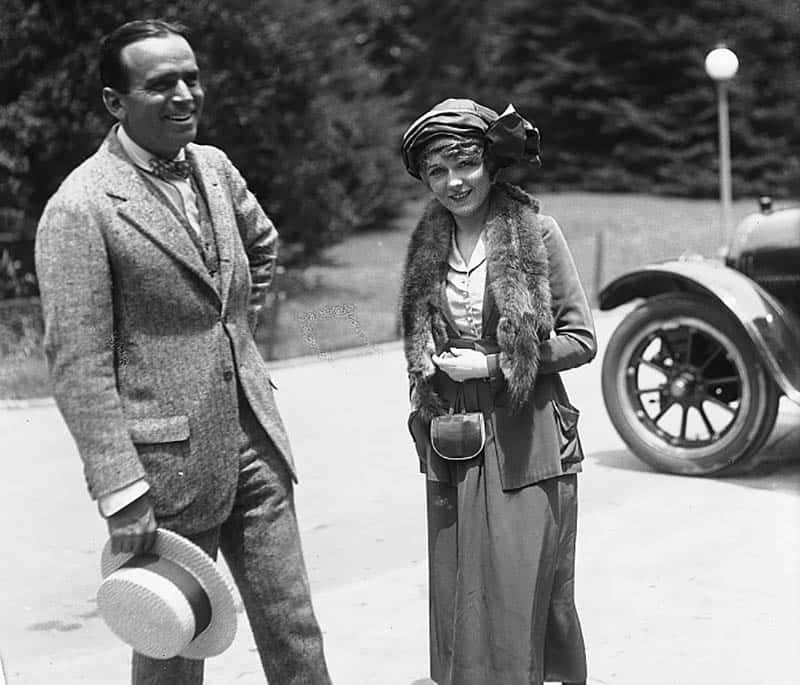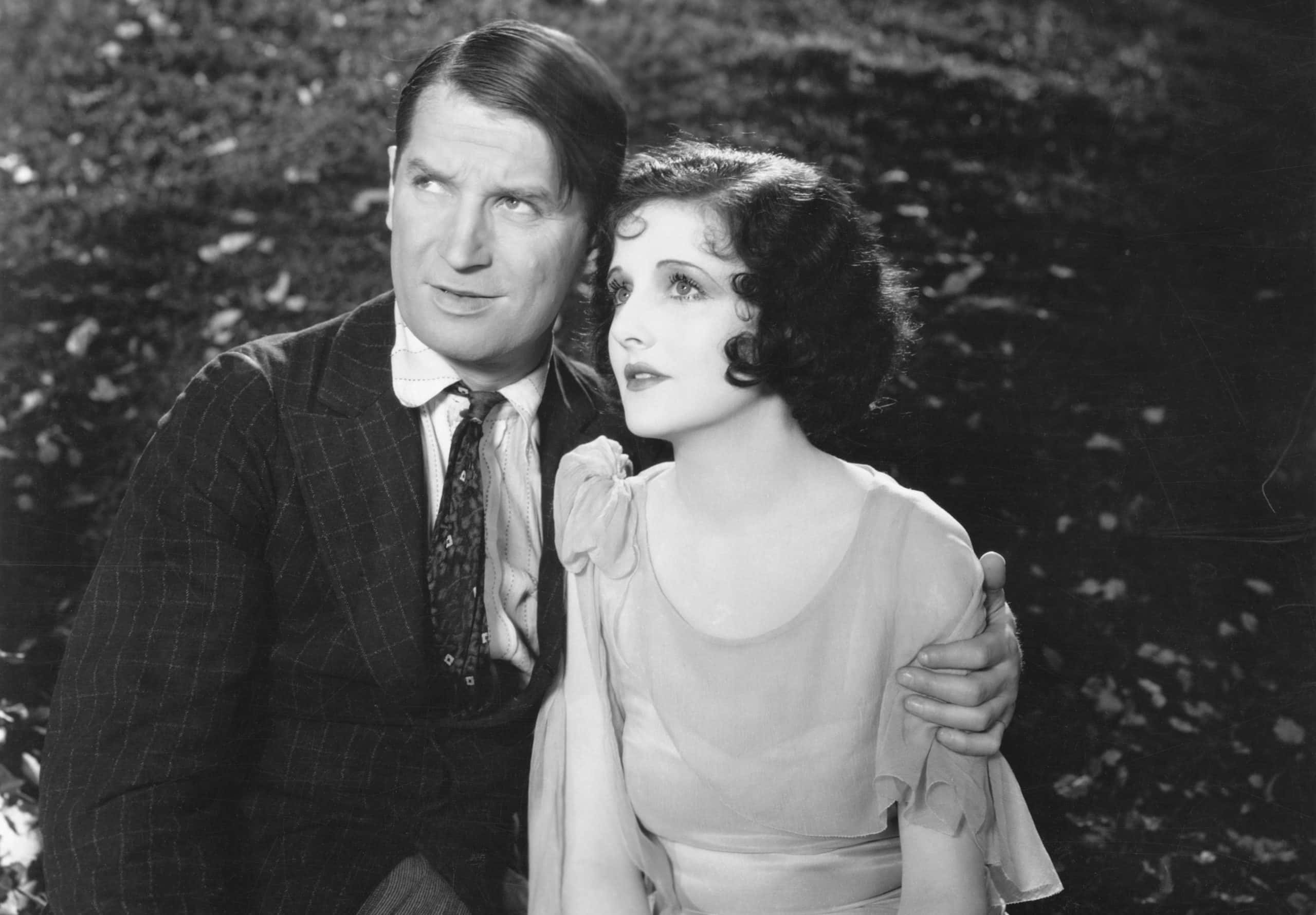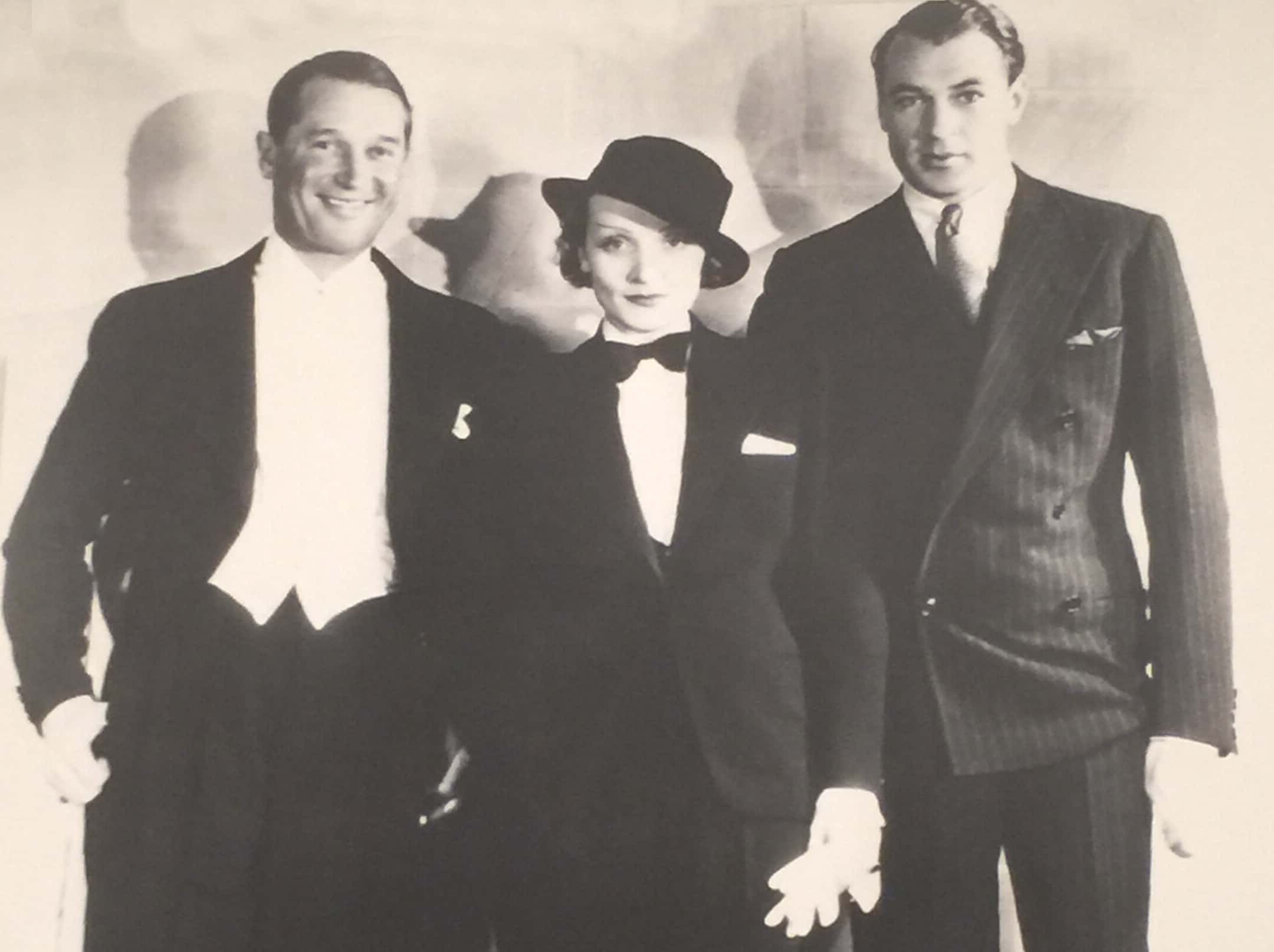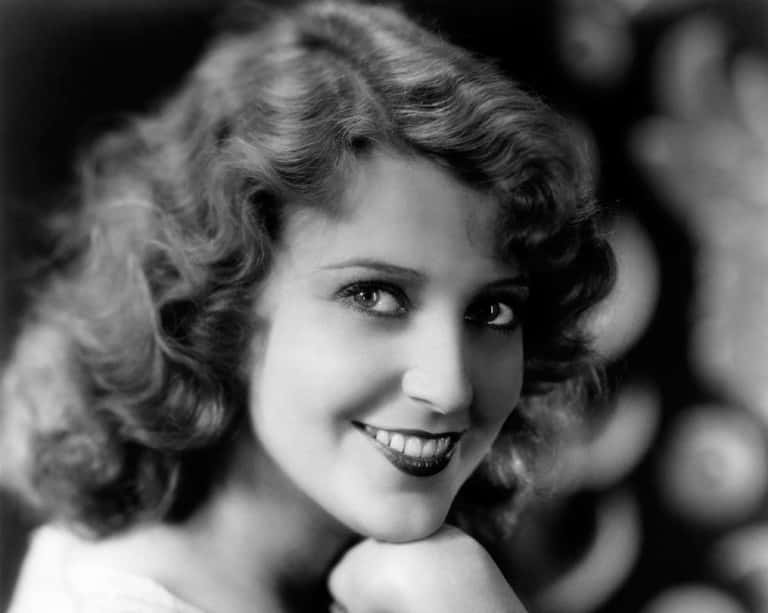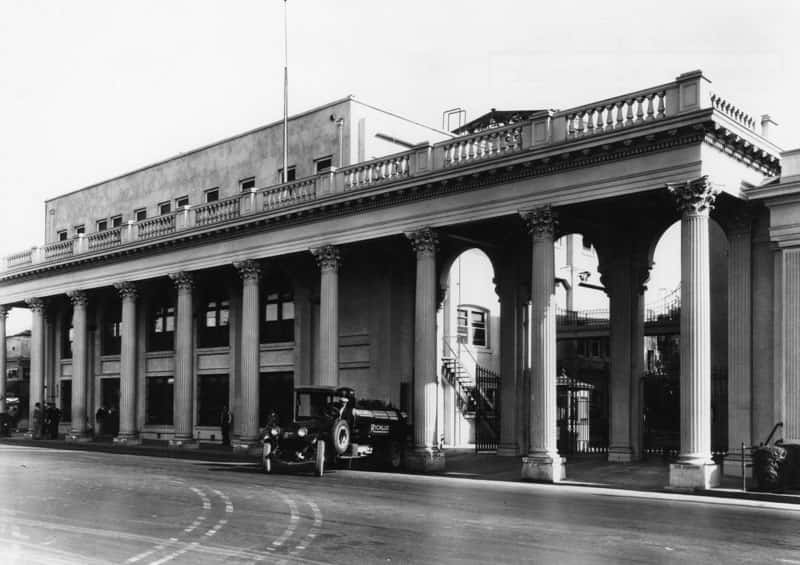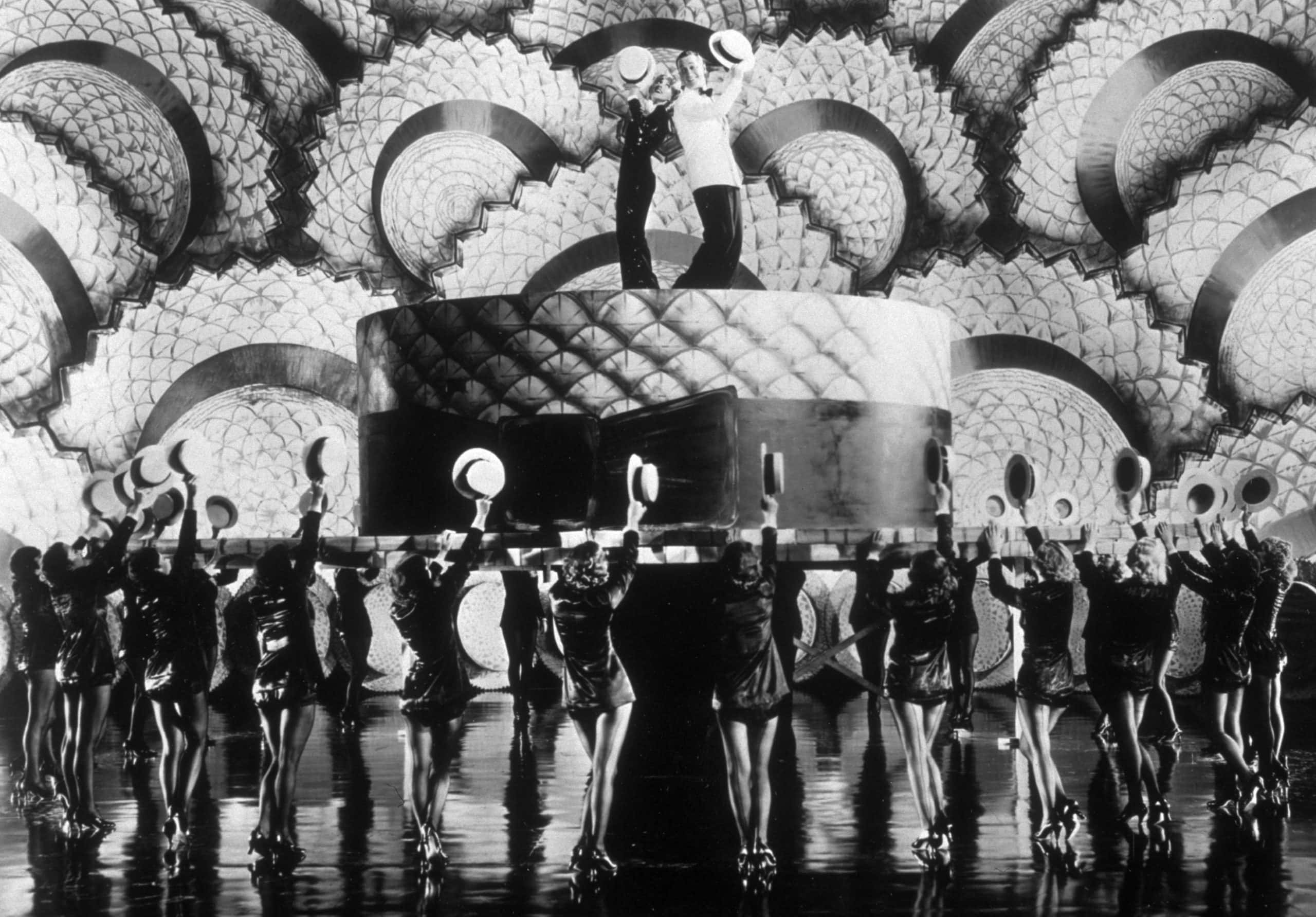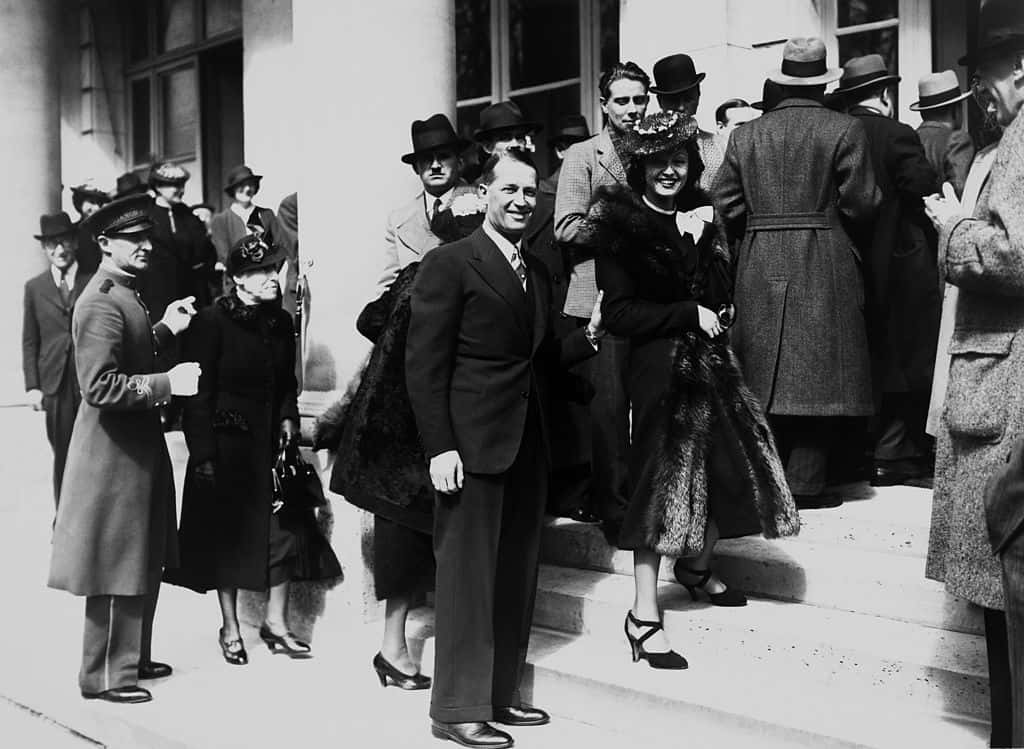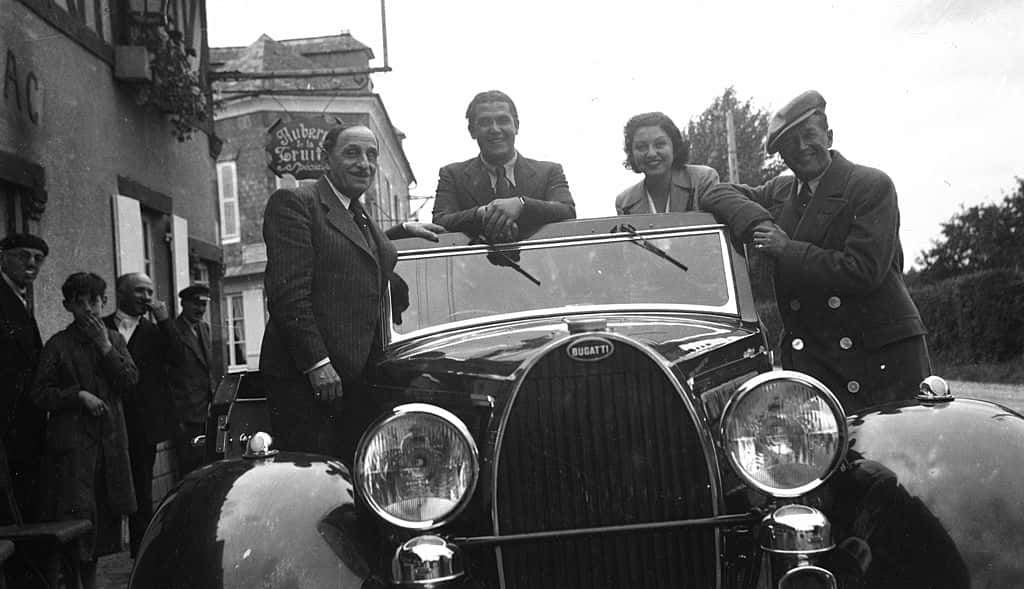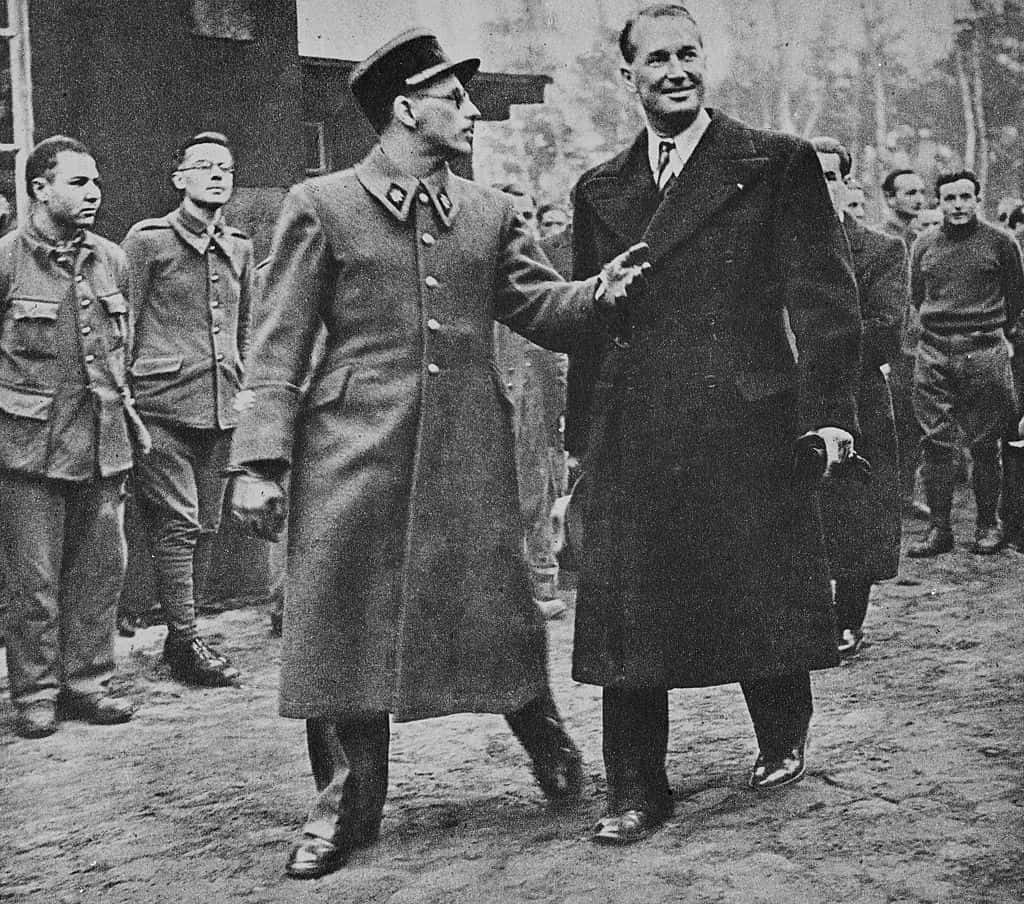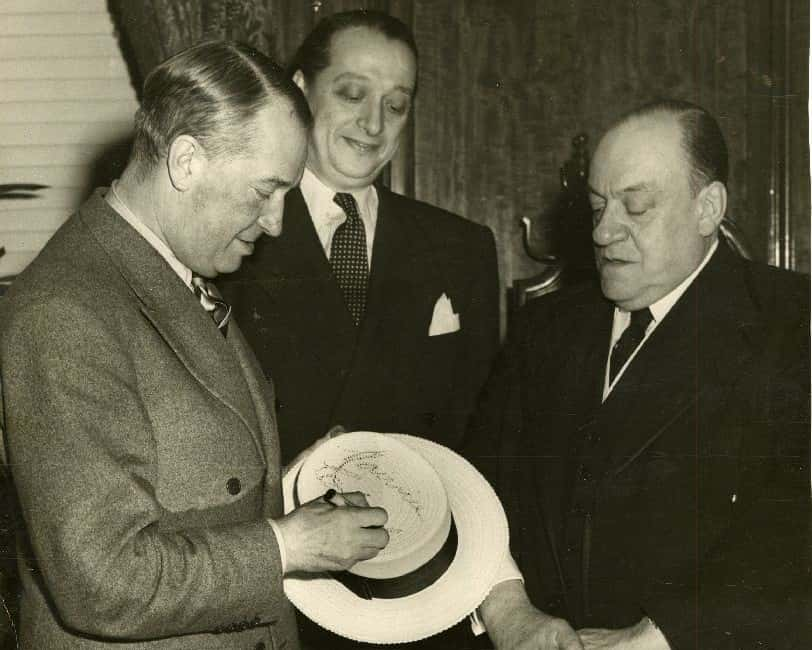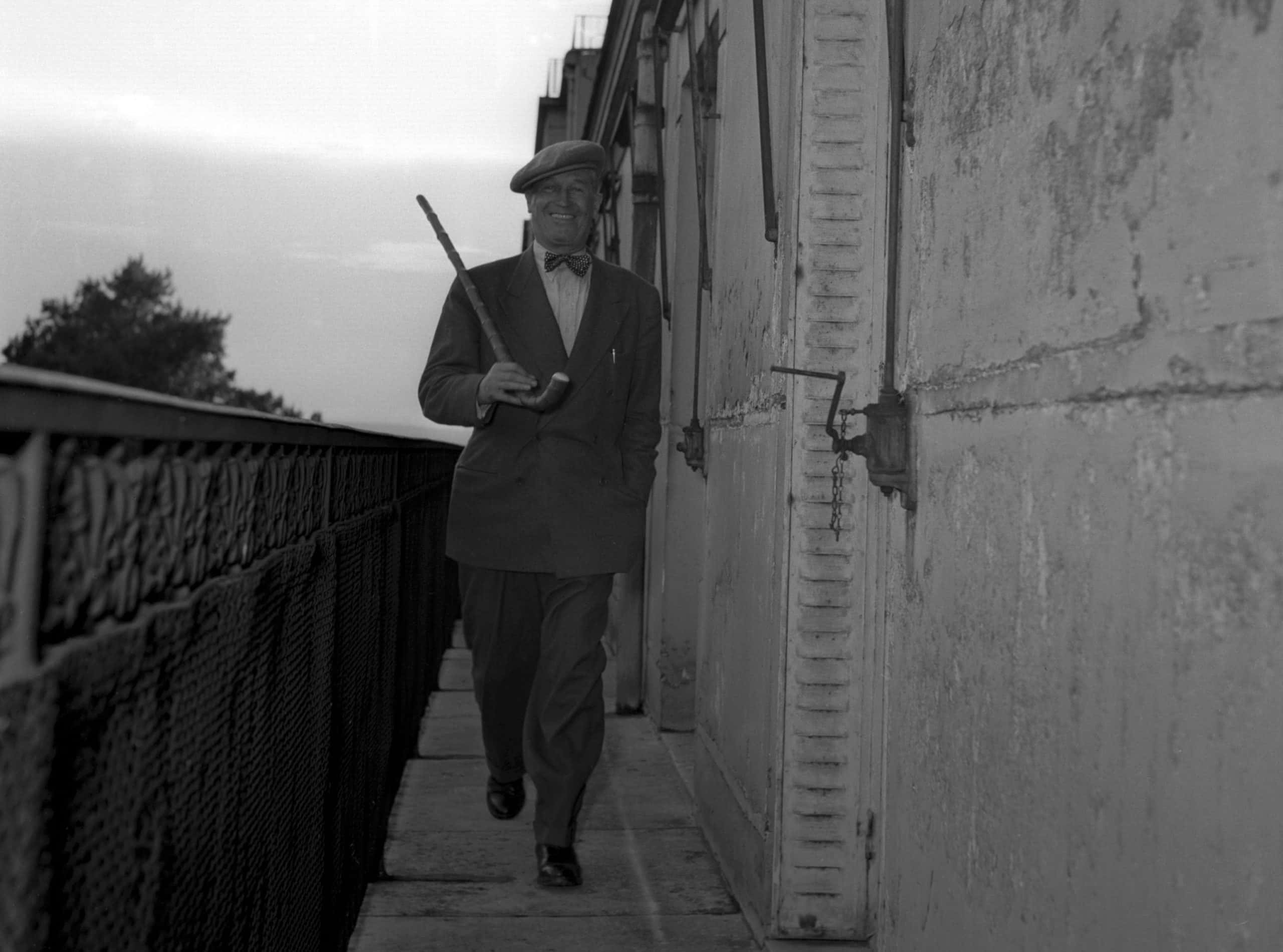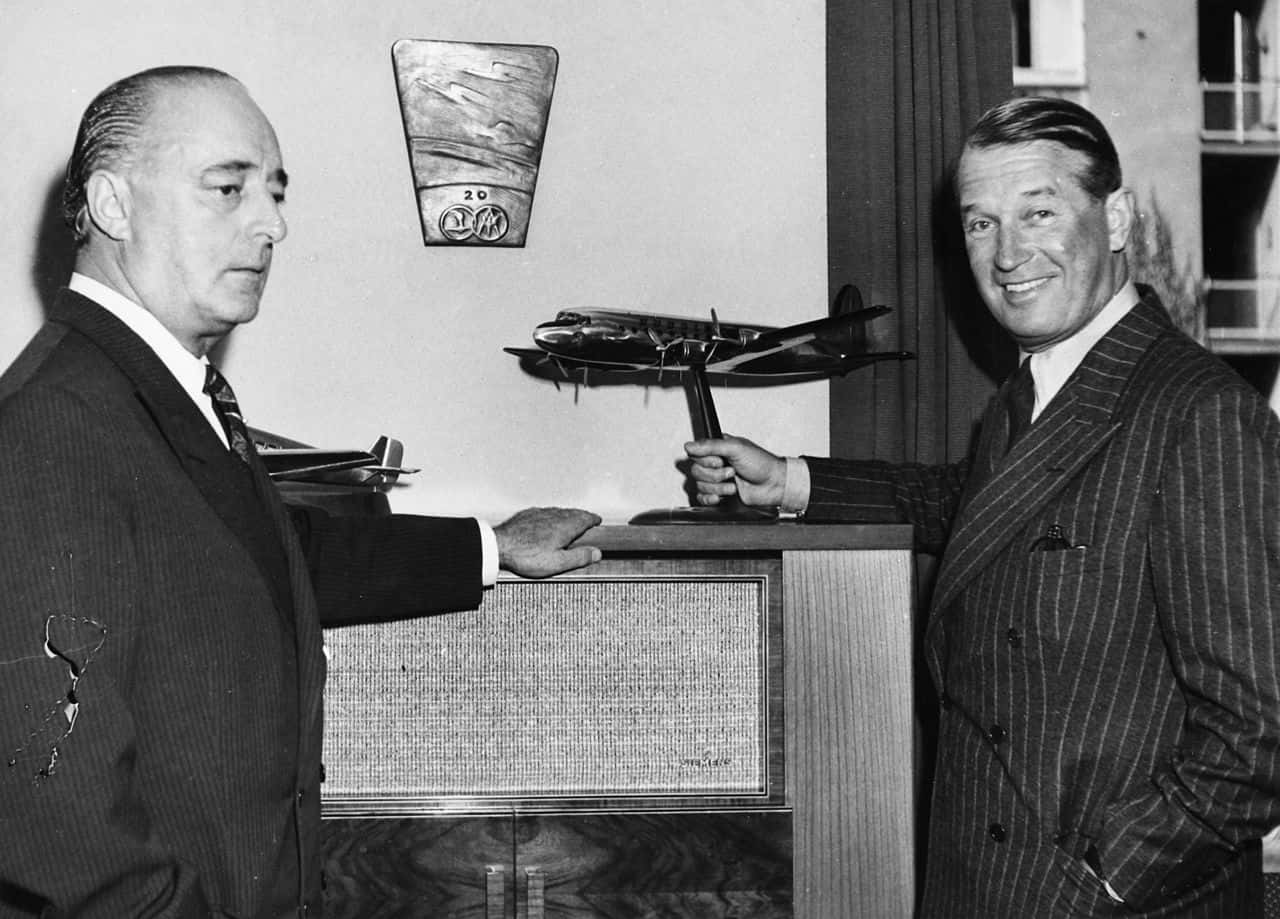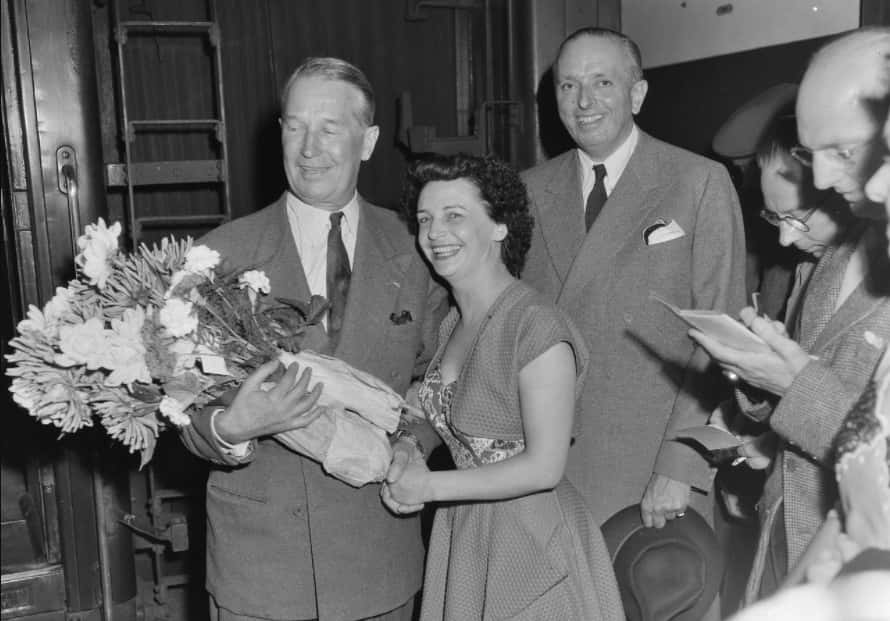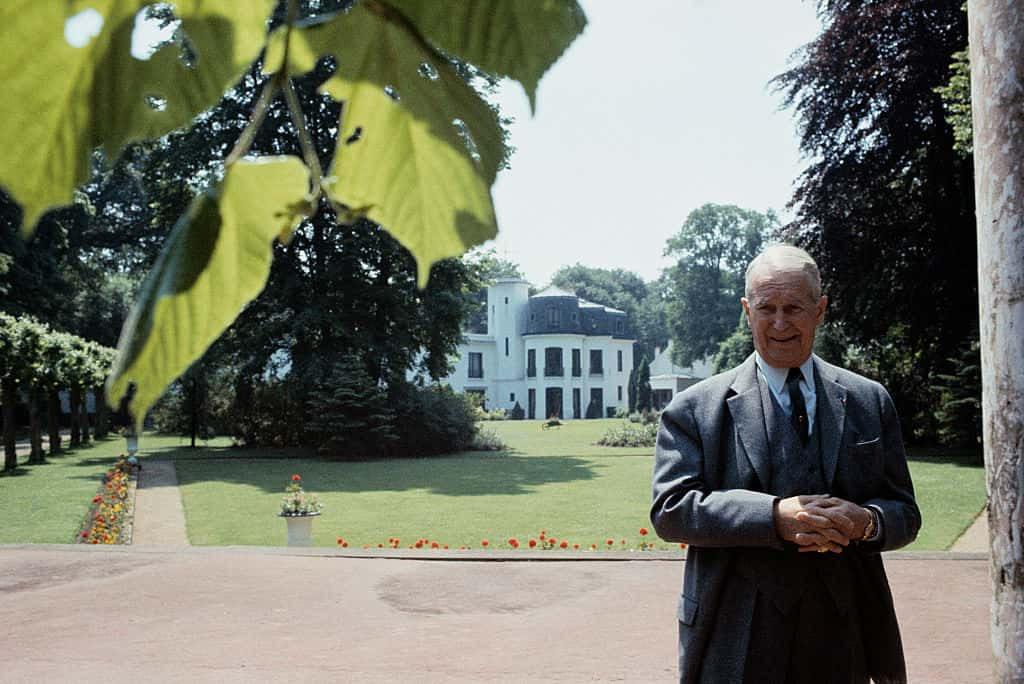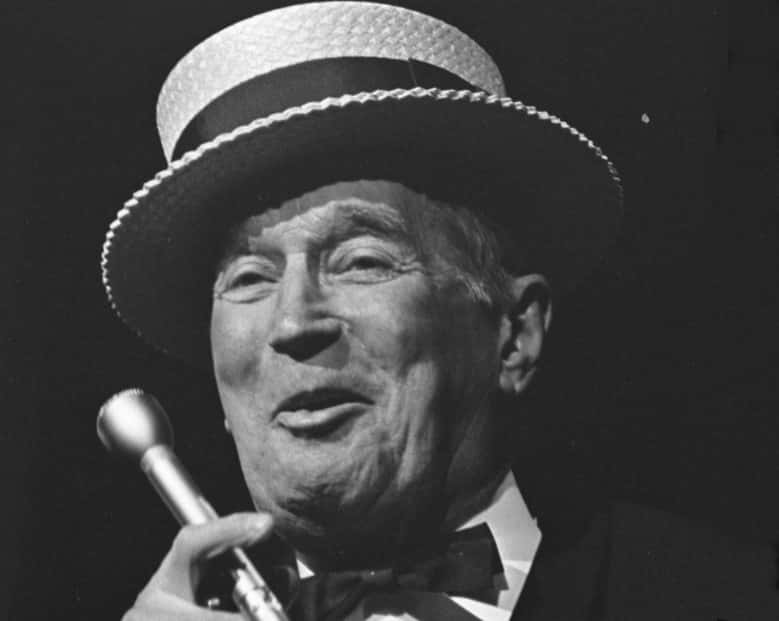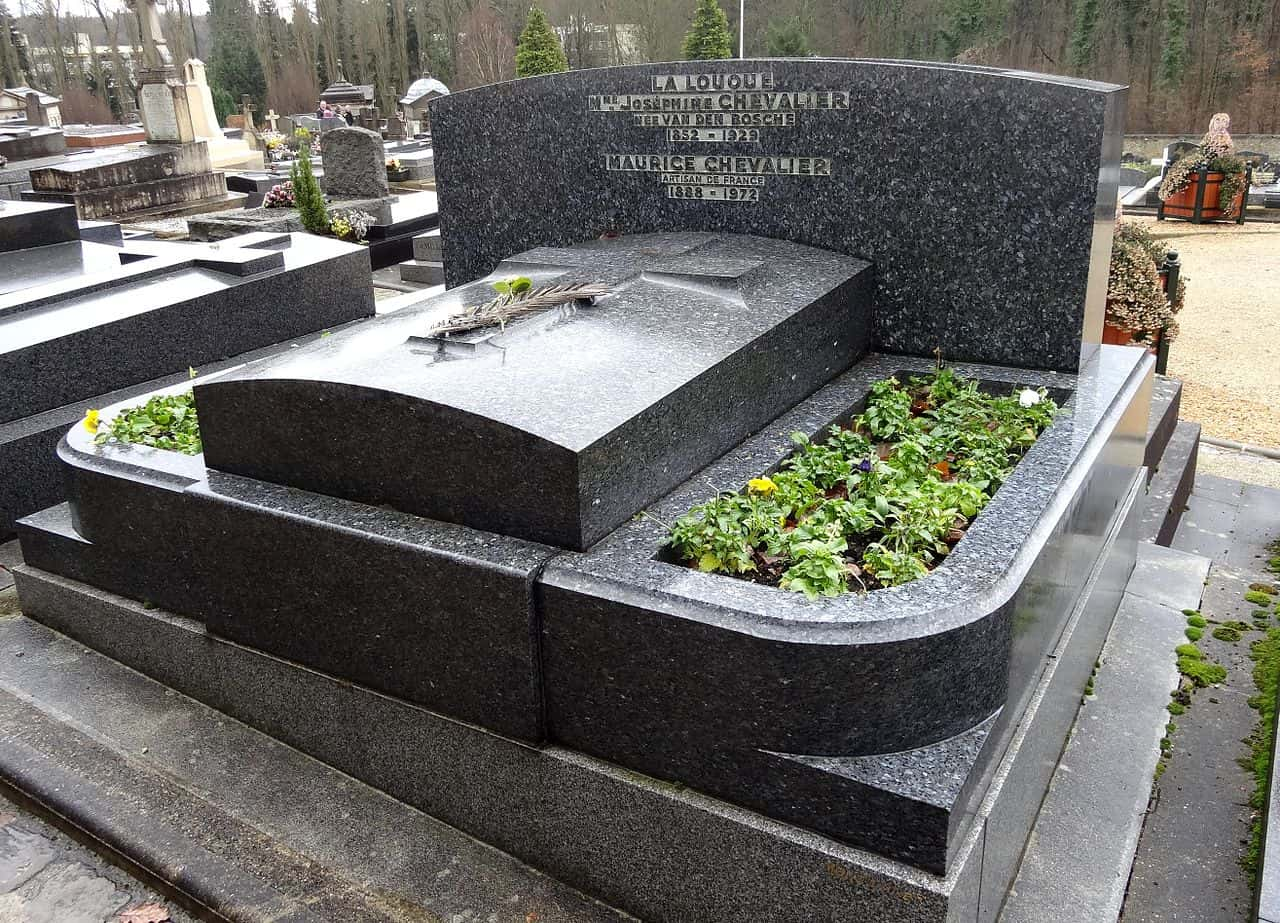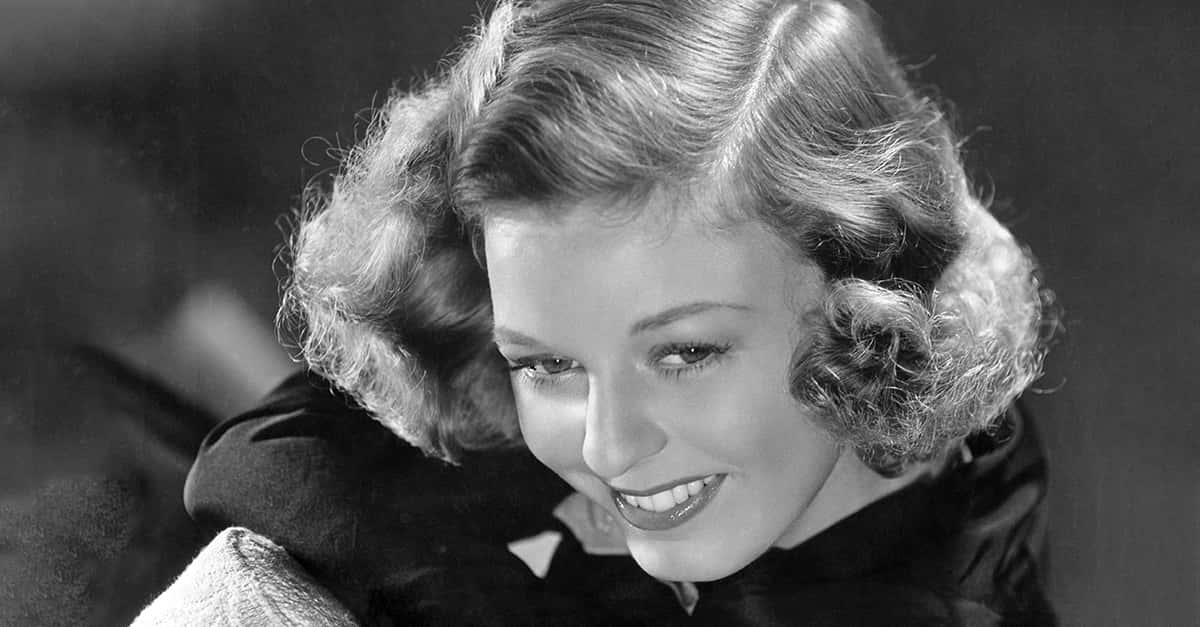If anyone’s ever lived a rich and eventful life, it’s Maurice Chevalier. The man lived through two World Wars, worked in Paris, London, and the US, and performed on stage, in silent films, and in musicals. There was a time when people called him the "most popular Frenchman in the world," but despite his fame and experiences, Chevalier was never truly happy. So what did he achieve, and why wasn’t it enough? Let’s shine a light on the past and see for ourselves.
1. He Had A Difficult Beginning
Chevalier’s problems started right from the get-go. Born Maurice Auguste in 1888 to a painter dad and lacemaker mom, he was the youngest of three sons. For Chevalier, it was pain and misery right from the start. His dad had a drinking problem and abandoned the family when he was just eight. The boys had to rely on their mother to care for them, which she tried her best to do—until a devastating development.
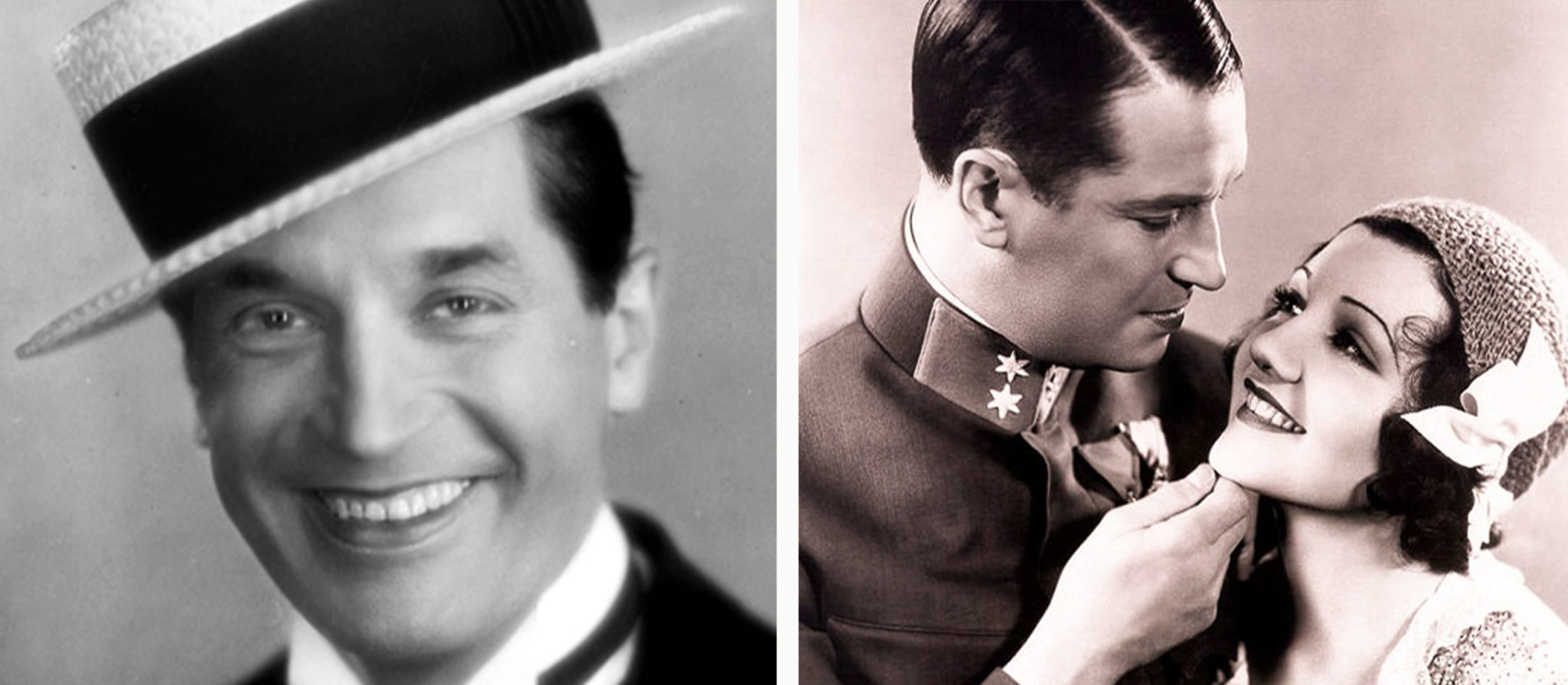
2. He Saw Some Troubling Times
When Chevalier turned ten, his world turned upside down yet again. His capable, caring mom had to spend some nights in the hospital because her stress level was off the charts. Although his eldest brother Charles tried to shoulder some responsibility, he soon gave up on his brothers. He got married and moved out, free of the hassle of their struggling family. This left young Chevalier with very few options.
3. He Followed His Heart
Although his mom was back from the hospital, it was clear to young Maurice and his brother Paul that they’d have to pitch in, else she end up right back where she started. Paul started working at a factory, and Chevalier dropped out of school before his 11th birthday to become an acrobat. He was pretty good at it too, but he couldn’t live his dream because of a terrible incident.
4. He Tried To Chip In
No one here is arguing that acrobat is the safest career choice. Chevalier injured himself so badly that he had to give up on his dream. He took this disappointment in his stride, though, and tried several other odd jobs to pitch in for the household expenses. He worked as a carpenter, electrician’s apprentice, printer, and doll painter until he finally found steady work at a mattress factory. Oh, the glamour!
Sadly though, his daydreaming resulted in a machine crushing his finger. The little guy just couldn't catch break! What was he supposed to do now? His body was broken, but he still had one asset: His voice. Well, kind of...
5. He Focused On Something New
There wasn’t much Chevalier could do with his broken finger, so he decided to offer his singing services at a cafe close to home. The owner agreed, although he was skeptical about hiring a 12-year-old singer. He may have had a point, because Chevalier sang off-key throughout his performance, much to the audience’s amusement and his own chagrin.
Completely discouraged, young Maurice made it home to vow never to perform again. But then his mom and brother intervened.
6. He Refused To Give Up
Bolstered by his family’s confidence in his abilities, Chevalier worked on controlling his nerves and perfecting an act for his audience. He returned to the cafe to perform, calling his act "Little Chevalier, Miniature Comic". He filled his show with lewd gestures and language. It delighted the general music-hall crowd, but wasn’t a hit with the more fashionable gentry.
Still, it gave Chevalier a taste of success. There was no stopping him now.
7. His Popularity Grew
As Chevalier grew older he realized something that became a gamechanger: He was quite the looker. He experimented with his looks and style and evolved from "titi—boulevard smart-alec—into a suave seducteur". This worked in his favor; he got better roles and he won lots of admirers in Paris after one particularly successful performance in Marseille.
And he was especially happy to win the admiration of one special person.
8. He Mixed Personal With Professional
Chevalier collaborated successfully with several other performers in his career, but those collaborations often benefited him alone. His first association was with Fréhel, the biggest French star of her time. She helped Chevalier become a bigger name than he was, but after two years of sharing the limelight with her, our man Maurice decided he needed to move on.
There may however be a darker reason why he left her.
9. He Picked Up Some Bad Habits
Maybe there was more to the Fréhel-Chevalier story than met the eye. She was notoriously fond of drink and illicit substances, and he claimed he became addicted to coke while he was with her. So did he leave her because he wanted to distance himself from these temptations—or was it because he spotted someone fairer on the horizon? Why not both?
10. He Changed "Mentors"
Chevalier became smitten with another famous French performer on the Parisian stage: Mistinguett. And, to his disbelief, she had the eyes for him as well. Fréhel who? While Mistinguett realized that the handsome young man, ten years her junior, didn’t have a strong voice or dancing skills to write home about, he bowled her over with his charm.
Just like that, one of the most beautiful and scandalous women in Paris took him under her wing. He was in for quite a ride.
11. He Learned New Skills
Since our young Chevalier was "a great, shy, unsophisticated lad," Mistinguett had to work with him on his mannerisms and stage etiquette. This meant rigorous dance training, which required them to "leap on top of tables...somersault and cartwheel across the stage" and ended with them diving at each other and rolling up in a carpet together on the floor. But this act was secretly much more sordid than the audience realized.
Much to Chevalier’s initial surprise and eventual delight, Mistinguett wanted to give him an...erm, well-rounded education. As such, while on stage, he often found her hand wrapped firmly around a "sensitive part of his anatomy" as they lay together in the end, hidden under the carpet.
12. He Made It
While their fans couldn’t see some of their personal "activities" (probably for the best), Chevalier's love affair with Mistinguett was very public and very passionate. Mistinguett’s patronage and insistence on partnering only with Chevalier ensured that his career took off in a big way. But unfortunately for him, he did not get to enjoy the taste of success for too long.
13. He Had To Take An Abrupt Break
Sometimes life throws you a completely unexpected curveball. In Chevalier’s case, it happened when France entered WWI and he had to serve his national duty. His leaving broke Mistinguett’s heart, but there wasn’t much she could do about it. Even though Chevalier didn’t want to go, he didn’t shy away from his responsibilities.
And that is how his life took a shocking turn.
14. He Was At The Frontline
Never one to give in to fear, Chevalier posted himself at right at the front lines. It wasn't long before disaster struck. One terrifying day, a piece of shrapnel struck him in his back and wounded him. Thankfully, the wound wasn’t fatal, but a terrible fate did await him once he was better.
15. His Life Changed Completely
Where he’d once tasted success as a rising star, Chevalier now had to swallow the bitter pill of being a POW. The Germans captured him once he recovered and he spent the next two years in a prison cell with other men like himself. Knowing him as we now do, it’s hard to imagine the man twiddling his thumbs while there.
Of course; he did anything but.
16. He Tried To Make The Most Out Of It
Talk about turning lemons into lemonade; Chevalier did not want to waste his time thinking about what might have been. He spent his two years as a POW doing something very constructive: Learning English. He felt certain it would help him in his career once he was free, and really, he wasn’t wrong.
And although two years is a long time, he might have had to spend longer in the prison if it wasn’t for the efforts of his greatest fan: Mistinguett.
17. He Had A True Friend
If there’s one thing Chevalier had going for him, it was his good looks and charm. Almost every woman he met fell for him and wanted to help him in some way or the other. His departure had devastated Mistinguett, and further saddened her when she discovered his whereabouts. She convinced one of her many admirers, the King of Spain, to intervene and have him freed. See, it pays to have friends in high places!
Mistinguett set out to meet her lover and bring him home—unaware she was in for a harrowing adventure of her own.
18. She Sacrificed A Lot For Him
Mistinguett wanted to receive Chevalier herself and bring him home, but the French and German authorities had other ideas. Initially, the French thought she was the infamous Mata Hari and detained her until they confirmed she wasn’t. Next, the Germans refused to hand over Chevalier until she agreed to spy for them. She agreed, but only after deciding with the French to act as a double agent. However, this daring plan nearly backfired—fatally.
When the Germans realized what was up, they decided to execute her for her treachery. Fortunately, they spared her in return for some German wives and daughters whom the French authorities had detained earlier. Finally, after the adventure of a lifetime, it was time for the two lovers to reunite.
19. He Returned Home
Chevalier returned home to a changed Paris, and he found it hard to connect with the audience again. After the horror he'd seen, he struggled to jump back into his career and resume from where he’d left off. This might have been the end of Maurice Chevalier the entertainer if it wasn’t for Mistinguett, who really considered him her true love.
20. His Fans Returned Too
Chevalier could have kissed his dreams of fame and fortune goodbye if Mistinguett hadn’t fought for him. She refused to be part of any show without him, and slowly, he regained his confidence and charm. Accordingly, the audience regained a new love for him. He took his work seriously and started experimenting with new trends.
21. He Found A New Passion
Since the fighting hadn’t ended, Chevalier chose to play before British and American officers in the middle of his family’s move to another town. He discovered jazz and ragtime and began dreaming of touring various countries for his concerts. Meanwhile, though, Mistinguett discovered his waning interest in her in the most heartbreaking way.
22. Another Woman Entered His Life
While Chevalier may very well have been the love of Mistinguett’s life, he had no similarly enduring feelings for her. In 1918, when peace prevailed again, he turned his attention and his devotion towards an actress, Léonie Bathiat, better known as Arletty. Mistinguett was heartbroken—but that wasn't even the worst part.
While Chevalier's new affair didn’t last very long, he didn’t go back to Mistinguett. One passing fling, and Chevalier was ready to move on for good. You can imagine how Mistinguett felt about that, especially after all she'd done for him.
23. His Ex Was Very Bitter
Mistinguett regretted her feelings, but admitted that Chevalier’s "absence dominated [her] life". This, despite knowing that he’d used her to further his own career, and dropped her like a hot potato once he realized he didn’t need her anymore. Even when she breathed her last, Mistinguett remembered Chevalier among her other lovers as being "the best of them all".
As for Chevalier, he was never looking back.
24. A New Country Broadened His Horizons
Chevalier dreamed of traveling the world, so he jumped at the chance to perform at the Palace Theater in London. He still sang in French, but his English lessons in the German prison started paying off. Unlike many of his compatriots, he could cheerfully banter with his audience in English. This helped his popularity no end. He explored jazz music and ragtime some more too.
But the allure of Paris kept drawing him back.
25. He Dabbled In Different Things
Once he was back in Paris, Chevalier kept himself busy—but he still managed to stir up some scandal. He sang the song, "Valentine," which is still infamous for its risqué lyrics and Chevalier’s proper way of singing it. He also made the jump from the stage to the screen, starring in his first films. The biggest impression he made though, was in an operetta he almost skipped!
26. His Experiments Worked
When Chevalier found the opportunity to work in an operetta titled Dédé, he almost gave it a pass. Better sense prevailed, though, and he decided to give it a shot. Good thing, too, because it became one of his most successful works. Especially when American composers George Gershwin and Irving Berlin decided to bring it to Broadway, bringing him along to star in it too.
Chevalier had conquered Europe, so naturally, he tested his mettle across the pond as well.
27. He Found His Favorite Accessory
Chevalier discovered his most iconic look while in London. While visiting the Big Smoke, he saw a lot of well-dressed men. One of the items of clothing they wore that really caught his eye was a straw hat. He decided he’d get one for himself and, "from that moment [he] was never without a straw boater...even when those hats went out of fashion". Indeed, few fans could even picture him without his tuxedo and boater hat.
But that wasn’t the only element Chevalier would pick up and make his own.
28. He Developed His Own Style
Chevalier may have been a lot of things, but he wasn’t unrealistic. He admitted that his voice wasn’t a showstopper, so he knew he had to develop an individual style that wowed the audience. He tried out a half-talking, half-singing sort of song delivery, and luckily, he struck gold. The audience loved it, both in France and later in America.
Meanwhile, though he did not know it, his life was about to change in a huge way.
29. He Met Someone Special
Although Dédé was successful, Chevalier didn’t find any other work in the US. He returned to Paris feeling quite disgruntled. He started working on a French revue in the meanwhile, and during auditions for dancers, he met someone whose presence would make him forget his woes. Yvonne Vallée was "petite, dark, and shy," but she danced for herself, not for others.
Chevalier was so taken by her that he announced she’d be his own dance partner. Of course, it wouldn’t take long for her to progress from "dance partner" to something a little more...intimate.
30. He Settled Down For A Bit
It was only a matter of time before Chevalier, completely smitten, proposed to the gorgeous young Yvonne Vallée. They wanted a quiet wedding the next year, but the paparazzi found out about it and spoiled that plan. The couple were together for eight years, during which time Vallée often performed with her husband. Unfortunately, that wasn’t enough to make the marriage work.
They filed for divorce, citing incompatibility as the reason they couldn’t stay together.
31. He Didn’t Like Silent Films
Every performer has certain preferences. Chevalier preferred the sound of the stage, and so silent films just didn't do it for him. He tried a few, but they didn’t do too well—probably because his heart wasn't in it. So when American writer-director Douglas Fairbanks was honeymooning in Paris and offered Chevalier a silent film opposite new wife Mary Pickford, Chevalier refused.
Luckily, that didn’t mean Hollywood’s door had shut on him for good, though.
32. He Made His Name In Hollywood
Sound came to film in Hollywood in the late 1920s and Chevalier’s debut was in Innocents of Paris in 1928. Paramount Pictures signed a contract with him after that. He didn’t waste any time in making his place, though, and the Academy even nominated him for an award for Best Actor twice in the coming years for The Love Parade and The Big Pond.
The little kid who'd been a failed acrobat and mattress-maker was really starting to hit it big. Yet Chevalier had only just begun to show American audiences what he could do.
33. He Sang Some Memorable Songs
Chevalier got some big hits in the American Music market too. He sang some catchy tunes for his own films, such as Livin’ in the Sunlight, Lovin’ in the Moonlight. These songs established his presence on the world stage. He wasn’t just a French performer, performing for the French market anymore. And he’d end up achieving even more.
34. He Revived The Musical
When Chevalier came to Hollywood, American audiences were over musicals. They had next to no interest in watching them, so they didn’t do well at the box office either. But Maurice Chevalier was never one to listen to trends. He bucked the curve and starred The Smiling Lieutenant, which came out in 1931. Despite their dislike for musicals, people turned up to watch it and it was a success.
And it wasn’t just a fluke hit either. Though well into his middle age, Chevalier was just getting started.
 The Smiling Lieutenant (1931), Paramount Pictures
The Smiling Lieutenant (1931), Paramount Pictures
35. His Musicals Were Big Hits
If Paramount had any apprehension about casting Chevalier in musicals previously, they didn’t after his first hit. In fact, the next musical they cast him in—One Hour With You—was such a huge success that it left the audience wanting more. That’s why Paramount produced another musical in the same year—Love Me Tonight—with Chevalier and Jeanette MacDonald as the leads again.
He'd come a long way from that German POW camp—but this success started to bring out Chevalier's dark side.
36. His CoStar Wasn’t His Fan
His popularity with the ladies had made Chevalier quite smug, and not very willing to accept rejection for his advances. So the man didn’t like it when MacDonald firmly shut him up for hitting on her. He called her a "prude" and she responded by labeling him as "the quickest derrière pincher in Hollywood". Not a very flattering title, but Chevalier didn’t really care.
37. He Switched Loyalties
After a successful run with Paramount, Chevalier decided to move to MGM. It didn’t work out with them though, and he left after a quarrel on his star-billing: He felt they didn’t give him his due importance. That was it for his Hollywood run at the time. He decided he’d had enough of the United States and went back home.
38. He Went Back To Where It Began
Chevalier was happy to be back in his beloved France, and he resumed his stage career right where he’d left it. He also appeared in some French and English movies, and it seemed like his international star status was helping him find more work than before. Did it also help him find someone special though?
39. He Married Again
His first marriage may not have ended well, but that didn’t mean Chevalier had given up on the institution. He married dancer Nita Raya in 1937. But life had a funny way of throwing curveballs at Maurice Chevalier. Not long after the honeymoon period, the newlyweds came to a sickening realization.
40. He Had To Step Up
Chevalier had a problem: His new wife and her family were Jewish. The Germans had started invading France, so, for their safety, he moved with them and some Jewish friends to the South—the unoccupied zone of France. He may have also sheltered Mitty Goldin, who owned the famous ABC theater in Paris.
Unfortunately though, being in the free zone didn’t mean the Germans would leave him completely alone.
41. He Made Some Concessions
Even the Germans were Chevalier fans. They wanted him to play for them in Berlin, but he refused. He kept citing poor health as a reason for why he couldn’t perform, but the Germans hated the word "No" as much as he did. Soon, they began making chilling threats against his wife and her family. He knew then that he couldn’t refuse for too long, so eventually, he agreed to perform for them. In a twisted irony, his performance took place right where he'd been a POW himself all those years before. But he didn’t agree without getting something out of it himself.
He insisted that if he performed, the Germans would have to release ten French POWs. They agreed, and while this news should have made him a hero, it didn’t. As a matter of fact, the complete opposite happened.
42. He Was Branded A Traitor
The media twisted Chevalier’s visit to the German camp as an act of treachery. They made it sound like he’d been performing everywhere in Germany, and didn’t care about those affected by the war. Our man Maurice knew he was a marked man. The Germans could use his family against him, and the French Resistance fighters believed he was the enemy. He didn’t have many options, so he chose the safest one.
43. He Went Into Hiding
After sending his wife, her family, and their friends to a safer place in unoccupied France, Chevalier went into hiding himself. But this didn’t work, even after peace prevailed over the land. French law enforcement officials picked him up from his home and took him in for questioning. It was only after he went with them that Chevalier discovered he may be in for more than just a few questions.
44. He Almost Lost His Life
Apparently, the French had no doubt about Chevalier’s loyalties. He discovered that the officials were taking him away because he had a death sentence for collaborating with the enemy. Luckily, Maurice Chevalier was a resourceful man. He got the message to his secretary, who passed it on to a reporter, who succeeded in uncovering the truth.
The government felt embarrassed by the misunderstanding and he regained his "heroic" stature among his friends. But there was one other place that wasn’t as quick to forgive.
45. Hollywood Banned Him
Although his French countrymen had forgiven him and he could work there like he did before, the US wasn’t similarly forgiving. They refused Chevalier a visa for several years, initially because they thought he’d collaborated with the Germans, and later because he signed the Stockholm Appeal, agreeing to the ban of nuclear arms.
46. He Found Work Elsewhere
The Hollywood ban didn’t mean Chevalier couldn’t find work though. He worked all over Europe, touring his newly put-together one-man show. Eventually, the US would have to go back on its stance and allow him back too.
47. He Made A Comeback
Once the McCarthy era ended, Chevalier was able to go back to Hollywood and resume his film career as if he’d never left. He made a comeback tour in 1955 and his first film after the 20-year-gap was Billy Wilder’s Love in the Afternoon, also starring big names like Audrey Hepburn and Frank Sinatra.
Another big hit was Gigi, after which he even won an honorary Oscar for his achievements in Hollywood. Not bad for a man who couldn’t get an American visa for 20 years!
 Love in the Afternoon (1957), Allied Artists Productions
Love in the Afternoon (1957), Allied Artists Productions
48. He Believed In Frugality
Although he made a lot of money throughout his career, Chevalier was prone to be rather miserly when it came to spending it. He admitted that he was very careful about his money because "poverty is a disease that can never be cured". He did, however, buy a large property near Paris in 1952, which he named "La Louque," in remembrance of his mother.
And it was no wonder he missed her more with time.
49. He Was Lonely
Chevalier split with his second wife around ten years after their wedding. He met another woman, Janie Michels, a young divorcee with three children, a few years later, but that affair didn’t last too long either. So when he wasn’t working, or fooling around with chorus girls, his was a pretty lonely existence. It may have contributed in part to why he worked for as long as he did—and why he ended up making some bad choices.
50. He Retired
Chevalier spent the 60s touring the United States, Europe, and Latin America. He worked in several Hollywood films, including Can-Can with Frank Sinatra. He announced his farewell tour and his retirement in 1968. However, two years later, he agreed to sing the title song of the Disney film The Aristocats. This would be his final contribution to the industry.
The next time Chevalier made the news, it was an incredibly disturbing story.
51. He Was Prone To Melancholy
In March 1971, Chevalier tried to end his own life. He’d suffered from depression on and off in various stages of his career and in an extreme episode overdosed on barbiturates to end it all. Although he survived, the action had a lot of adverse effects on his health. Unfortunately, things would never be the same for him again.
52. His Story Ended Suddenly
In the wake of his attempt on his life, Chevalier spent months battling with liver damage, kidney failure, episodes of memory loss, and constant fatigue. It was only a matter of time, now. His body stopped responding to dialysis and doctors tried kidney surgery as a last-ditch effort to save him. He passed due to a cardiac arrest in January 1972.
His family laid him to rest in Marnes-la-Coquette, next to his mother. His funeral was a quiet, intimate ceremony attended only by family and some close friends. It was an appropriate farewell to a man who had lived big, but who only had a few to truly call his own.


